Last year, I was so inspired by the various Best Of, Must Read, Smashing Science Fiction and Fantasy lists I encountered around the net that I decided to make my own book list, books chosen entirely on the basis of merit and significance to the field1 . People enjoyed the first list so much that I perpetrated sequels. I posted a number of lists, each twenty books long, each selected entirely on the basis of merit and significance to the field (ahem). Here, at last, the quintessence of Nicoll lists, comprising the books I would most heartily recommend. Each entry is annotated with a short description that I hope will explain why I picked it.
I am not implying that these are the only one hundred you should consider reading2 .
You may not know all of these. Congratulations! You are one of today’s lucky ten thousand. I will never again be able to read any of these for the first time… but you can!
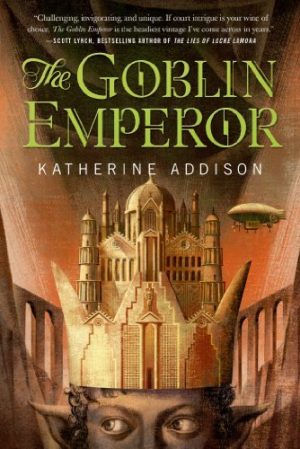
The Goblin Emperor by Katherine Addison (2014)
The story of a despised, abused person handed vast power, it demonstrates that one can choose not to be a monster.
Buy the Book


The Goblin Emperor
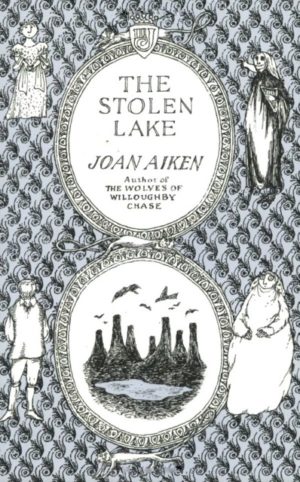
The Stolen Lake by Joan Aiken (1981)
An amusing YA alternate-Arthurian adventure, featuring plucky leads.
Buy the Book


The Stolen Lake
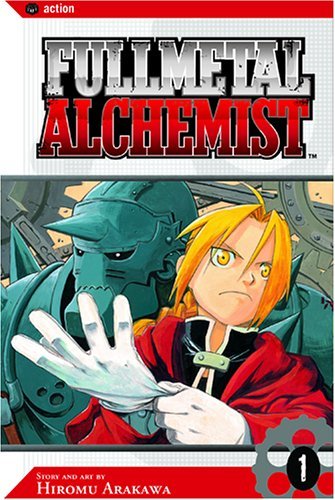
Fullmetal Alchemist by Hiromu Arakawa (2001-2010)
An intricately plotted manga about the temptations of power.
Buy the Book


Fullmetal Alchemist
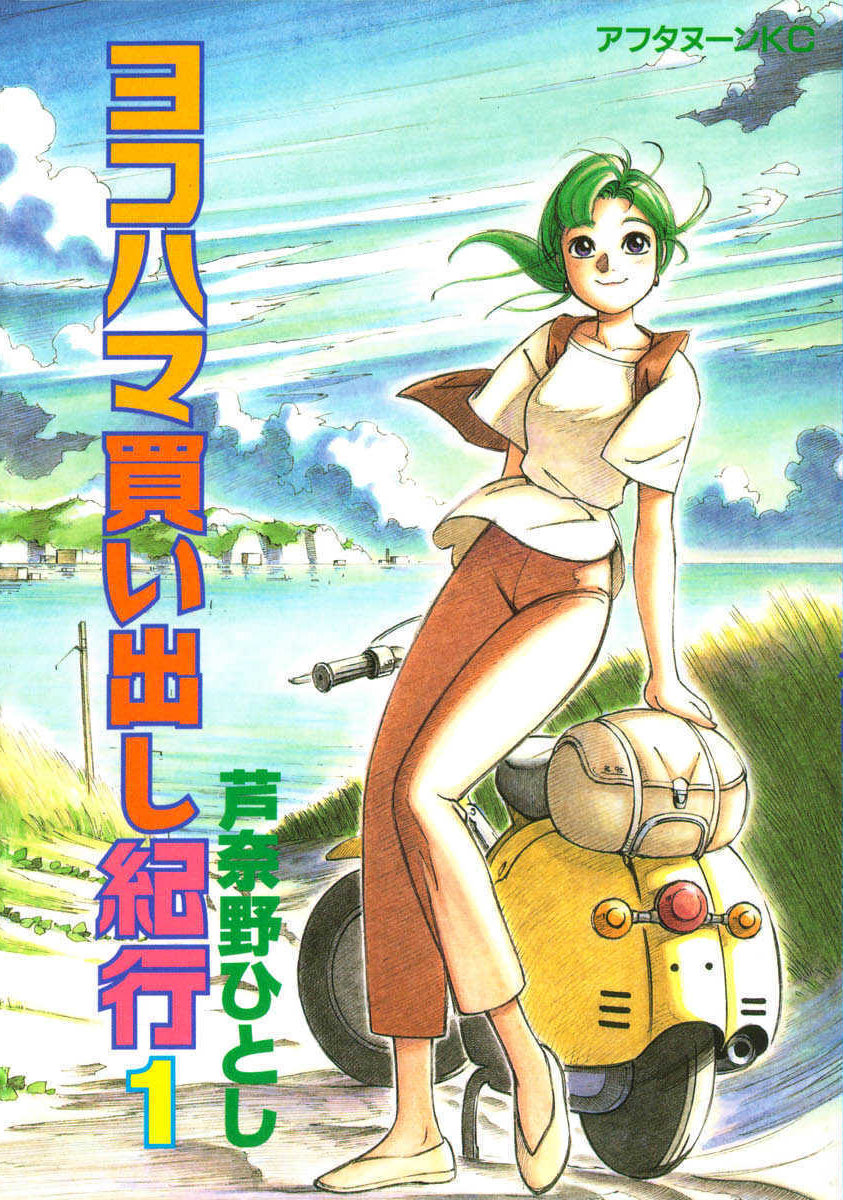
Yokohama Kaidashi Kikō by Hitoshi Ashinano (1994-2006)
A tranquil after-the-end slice-of-life manga, a story in which the apocalypse is as relaxing as a sunset.
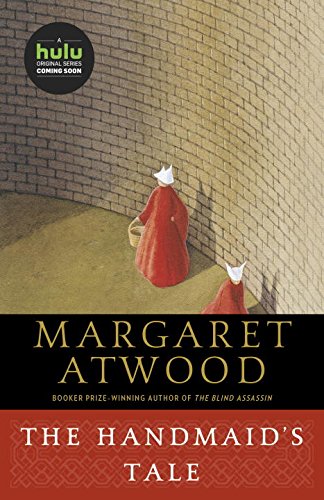
The Handmaid’s Tale by Margaret Atwood (1985)
Because it’s not wrong to be angry about injustice and reading about fictional injustice can draw one’s attention to its real world inspirations.
Buy the Book


The Handmaid’s Tale
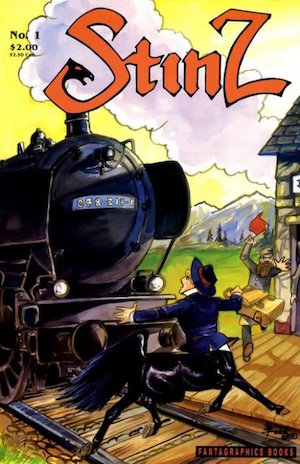
Stinz: Charger: The War Stories by Donna Barr (1987)
Perhaps the finest military fantasy about a Germanic centaur in a quasi-WWI setting ever.
Buy the Book


Stinz: Charger: The War Stories
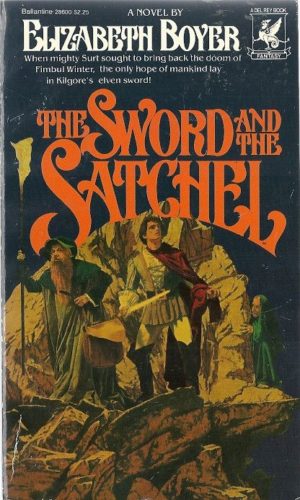
The Sword and the Satchel by Elizabeth Boyer (1980)
A quest fantasy about a hapless hero’s effort to kill that which is unkillable. Who doesn’t like seemingly hopeless quests?
Buy the Book


The Sword and the Satchel
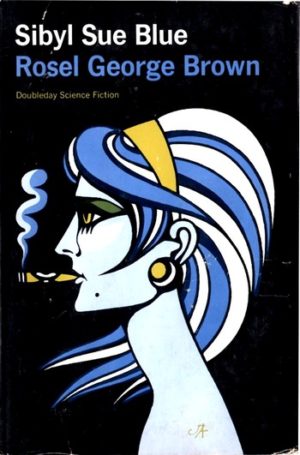
Galactic Sibyl Sue Blue by Rosel George Brown (1968)
When this was published in the 1960s, women protagonists who were two-fisted space detectives were extremely rare; this is one of the few examples.
Buy the Book


Galactic Sibyl Sue Blue
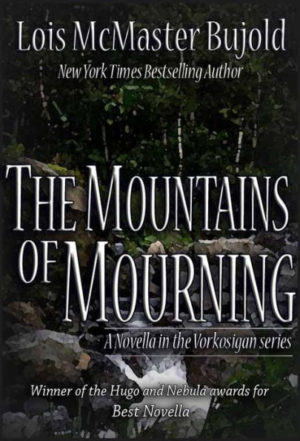
The Mountains of Mourning by Lois McMaster Bujold (1989)
A murder mystery set in a backwater county on a backwater world, this is the story that convinced me to be a Lois McMaster Bujold completist.
Buy the Book


The Mountains of Mourning
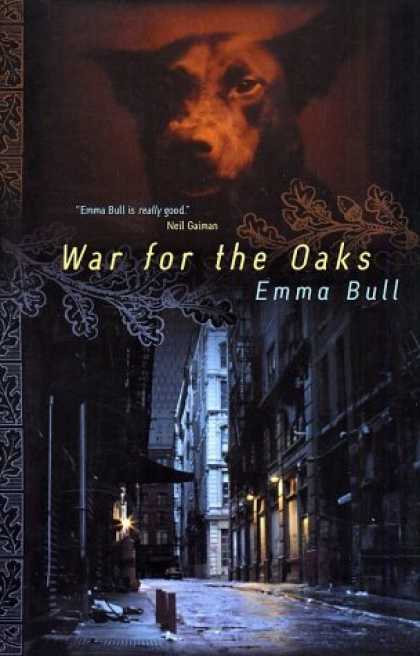
War for the Oaks by Emma Bull (1987)
A musician finds herself entangled in the affairs of the Fair Folk in the modern world. Well, olden times now, but thirty years ago the 1980s were the modern world. At the time, urban fantasy and paranormal romance had not crystalized; I believe this is one of the seeds around which the genre accreted.
Buy the Book


War for the Oaks
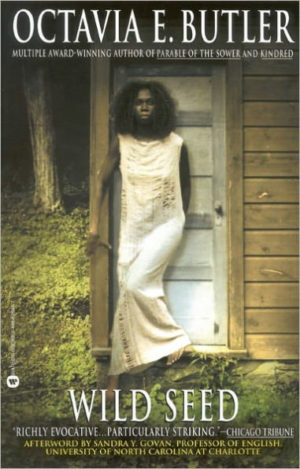
Wild Seed by Octavia E. Butler (1980)
The most polished of Butler’s Patternist books, the book that convinced me to buy everything Butler wrote.
Buy the Book


Wild Seed
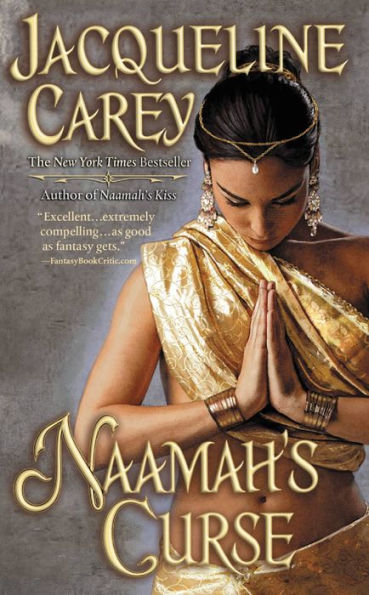
Naamah’s Curse by Jacqueline Carey (2010)
This book is built around a laundry-list of fantasy tropes I hate (don’t get me started on fantasy Celts) and yet, and yet… I could not put it down. I am convinced that if only I read enough of Carey books, I will somehow escape their spell.
Buy the Book


Naamah’s Curse
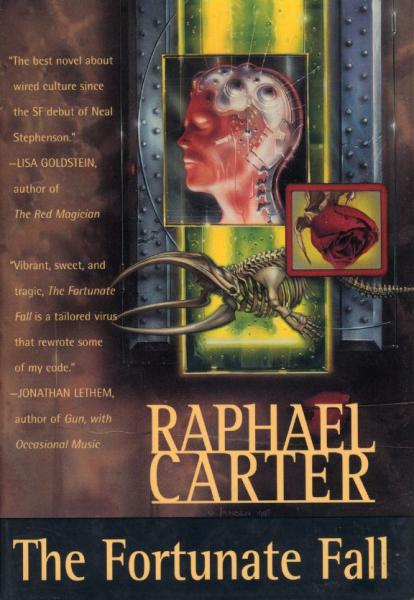
The Fortunate Fall by Raphael Carter (1996)
A remarkable example of mid-1990s post-cyberpunk.
Buy the Book


The Fortunate Fall
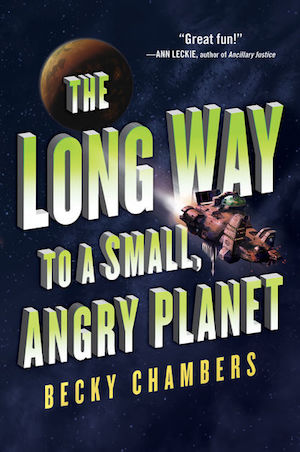
The Long Way to a Small, Angry Planet by Becky Chambers (2015)
Because sometimes one needs to read about a diverse crew of people forming a found family.
Buy the Book


The Long Way to a Small, Angry Planet
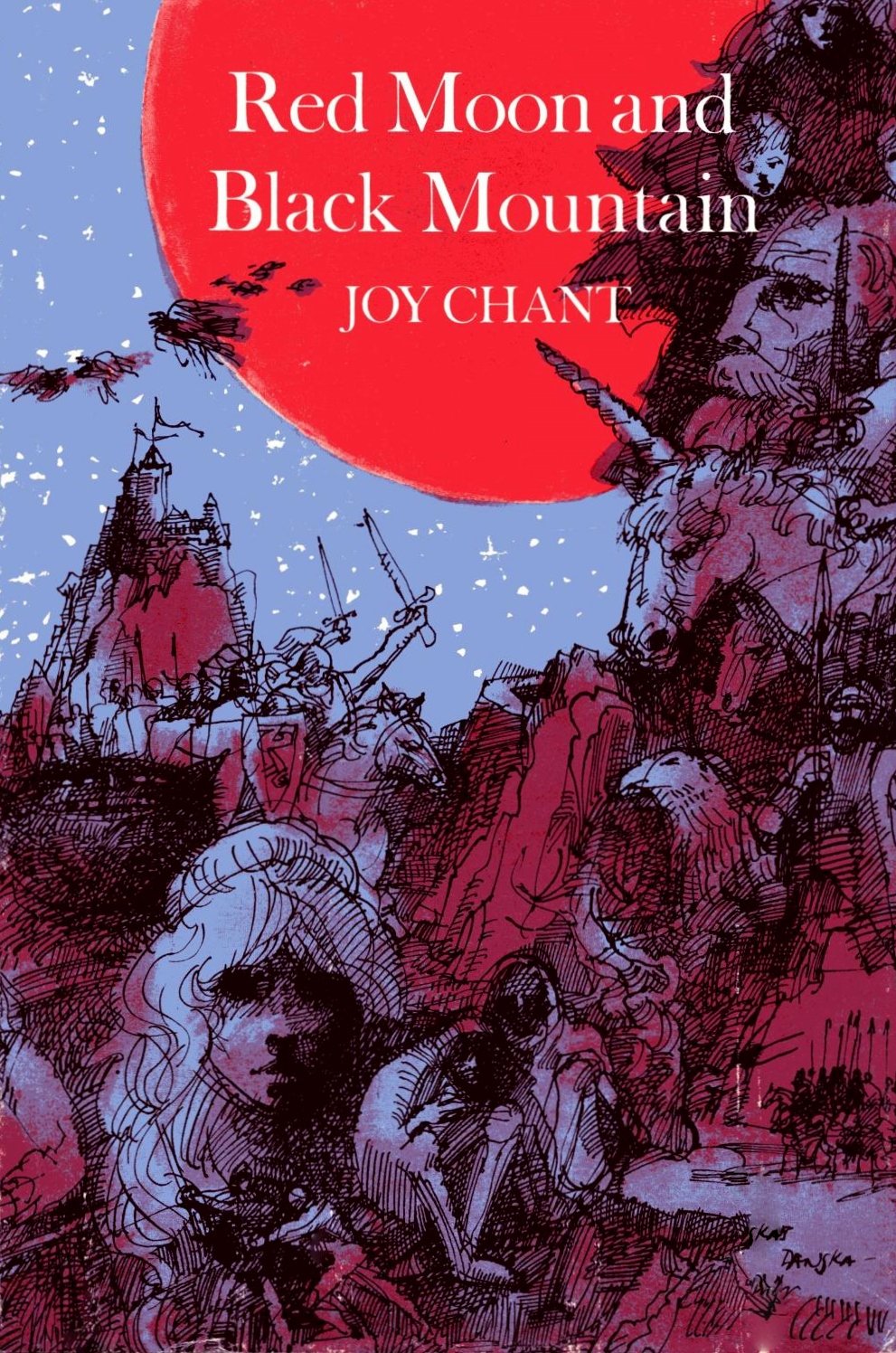
Red Moon and Black Mountain by Joy Chant (1970)
A Disco-era quest fantasy invoking elements of Lord of the Rings and Narnia, this high fantasy novel predates the later tsunami of commercial fantasy. I missed it at the time. Having finally read it, I am pretty sure it influenced later authors like Eddings and Feist…
Buy the Book


Red Moon and Black Mountain
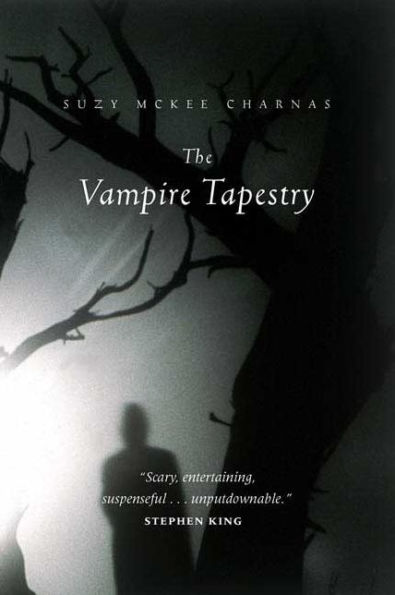
The Vampire Tapestry by Suzy McKee Charnas (1980)
To modern readers, this fix-up might seem to fit nicely into urban fantasy, but not only is its take on vampires more of an SFnal one, Charnas’ novel predates modern urban fantasy by decades.
Buy the Book


The Vampire Tapestry
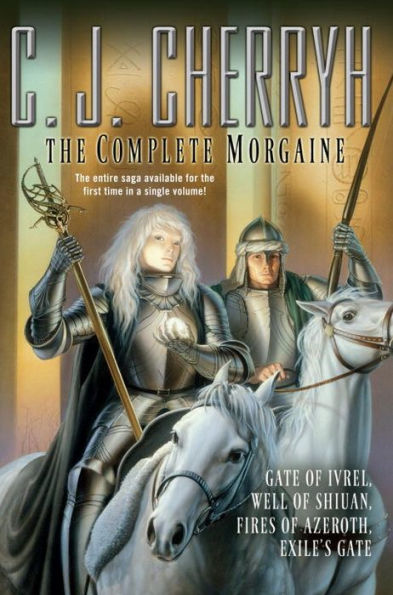
Gate of Ivrel by C.J. Cherryh (1976)
This was not the first Cherryh I ever read, but it was the first Cherryh I read that I actually enjoyed. It stands as an engaging example of early DAW publications (although hardly the only one on this list).
Buy the Book


Gate of Ivrel
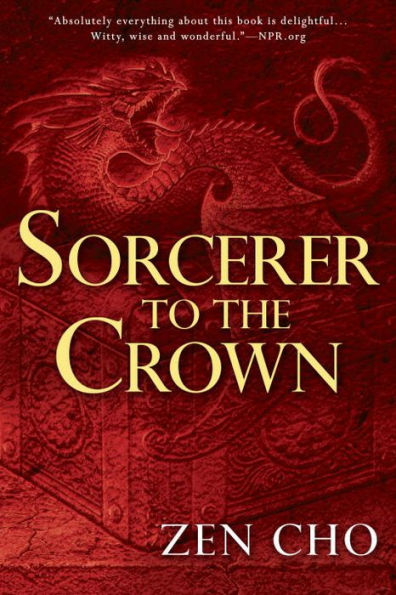
Sorcerer to the Crown by Zen Cho (2015)
People from all around the globe have come to Britain for centuries and millennia; there’s no reason to think its population of sorcerers would not reflect this. But what would be the reaction to a black Sorcerer Royal?
Buy the Book


Sorcerer to the Crown
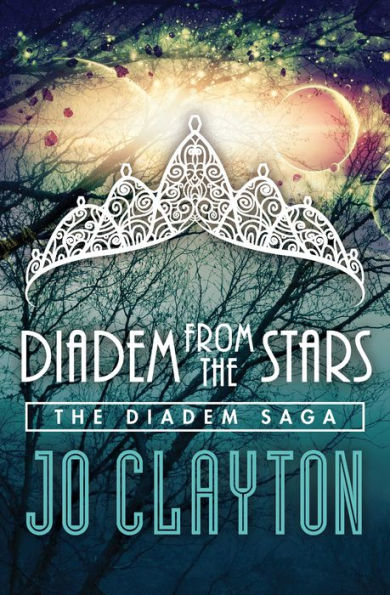
Diadem from the Stars by Jo Clayton (1977)
Another classic from DAW, this interstellar adventure underlines an important moral principle: never don a powerful alien artifact without being sure you can remove it.
Buy the Book


Diadem from the Stars
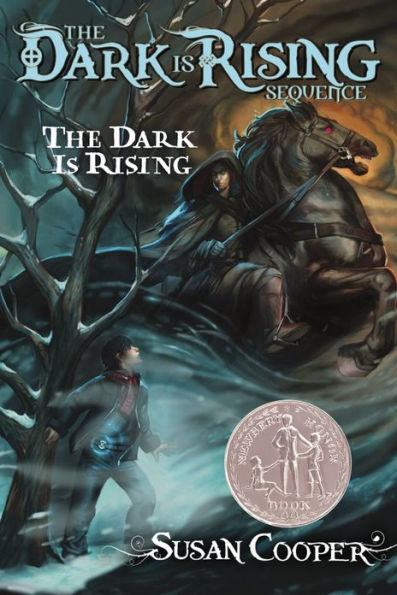
The Dark is Rising by Susan Cooper (1973)
Eleven-year-old Will Stanton might have preferred a bicycle for his birthday. What he got instead was a starring role in the war between Light and Dark.
Buy the Book


The Dark is Rising
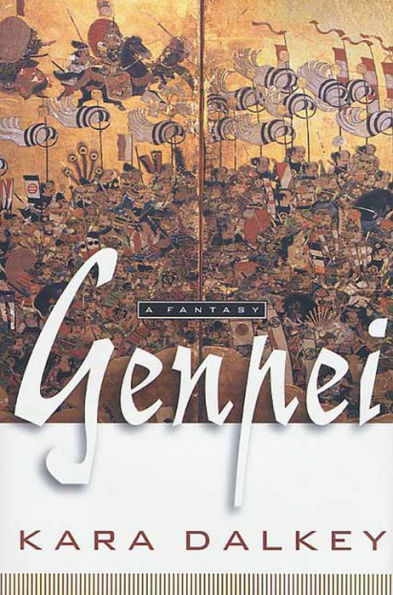
Genpei by Kara Dalkey (2000)
A modern-day retelling of Japanese history, exposing the occult secrets behind the Minamoto clan’s rise to power. Included because I don’t want to be criticized again for spoilers re: the end of the Heian Period.
Buy the Book


Genpei
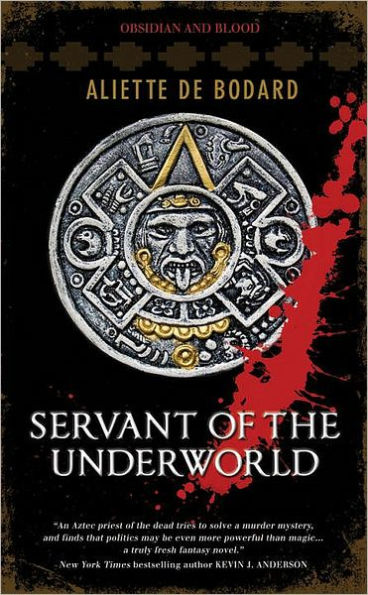
Servant of the Underworld by Aliette de Bodard (2010)
Aliette de Bodard’s Acatl has an advantage fellow crime-solving clerics like Father Brown and Brother Cadfael lack; Acatl serves the god of death—and unlike other pantheons, the Aztec gods are more than happy to share what they know with mortals. Not that this is necessarily a good thing.
Buy the Book


Servant of the Underworld
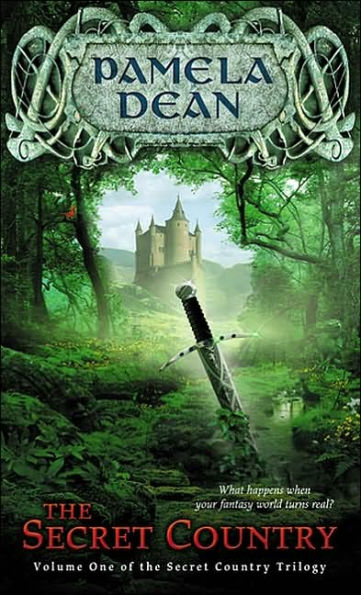
The Secret Country by Pamela Dean (1985)
I suspect describing this book as “imagine a better-written Narnia whose author is not an annoying god-botherer” is not the way to go here, and yet…
Buy the Book


The Secret Country
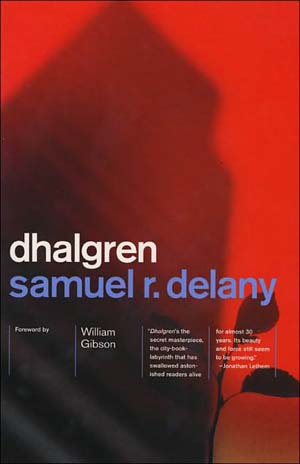
Dhalgren by Samuel R. Delany (1975)
It’s important to acknowledge SF’s crowd-pleasers along with its more ambitious works. Dhalgren is just such a crowd-pleaser. The inexplicably transformed city Bellona has enthralled readers for decades; the Bantam edition alone went through nineteen printings, with sales of over a million copies. [One of my advance readers asked at this point: “But how many of the people who bought it finished reading this doorstop? I didn’t.”]
Buy the Book


Dhalgren
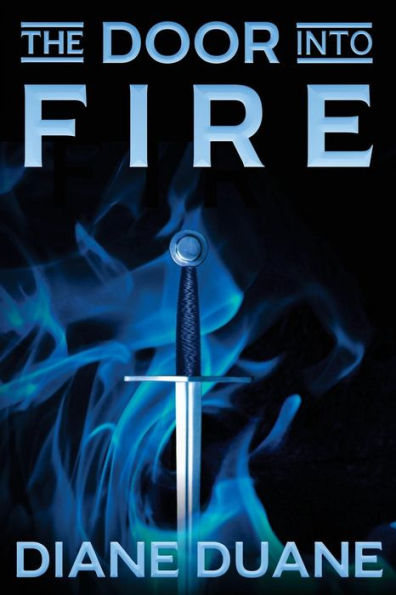
The Door into Fire by Diane Duane (1979)
These days, of course, many people are familiar with polyamorous reationships, but in the 1970s, Duane’s secondary universe adventure was eye-opening.
Buy the Book


The Door into Fire
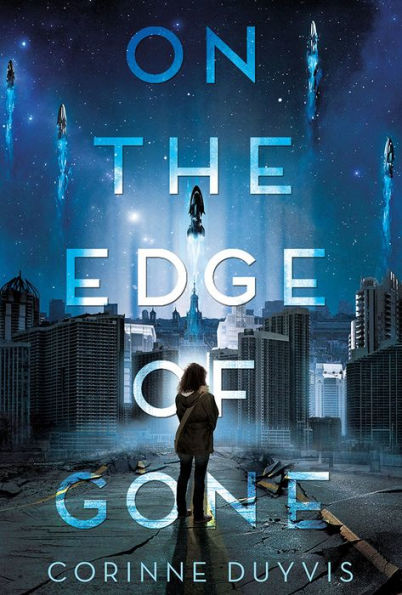
On the Edge of Gone by Corinne Duyvis (2016)
Another end-of-the-world story, one told from the perspective of someone who didn’t qualify for one of the few starships fleeing doomed Earth. SF generally takes an unsympathetic view of non-elites; this book is an exception.
Buy the Book


On the Edge of Gone
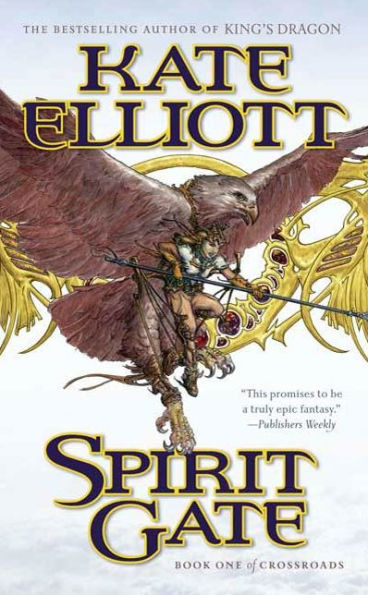
Spirit Gate by Kate Elliott (2006)
Excellent proof that authors can write vast, ambitious fantasies without losing control of their plot. Or missing release dates.
Buy the Book


Spirit Gate
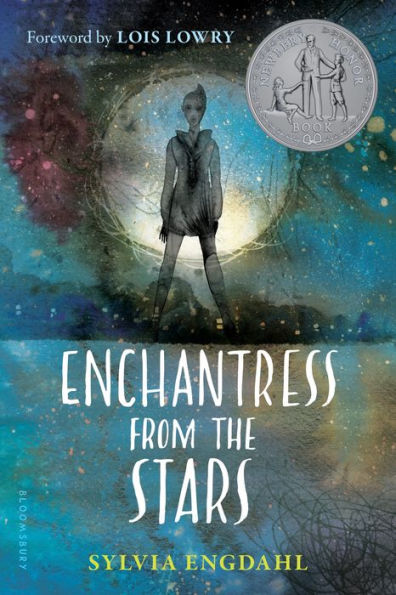
Enchantress From the Stars by Sylvia Louise Engdahl (1970)
A Disco-era anthropological quest gone wrong, Engdahl’s book manages to combine grim adventure with a rather touching faith in human potential.
Buy the Book


Enchantress From the Stars
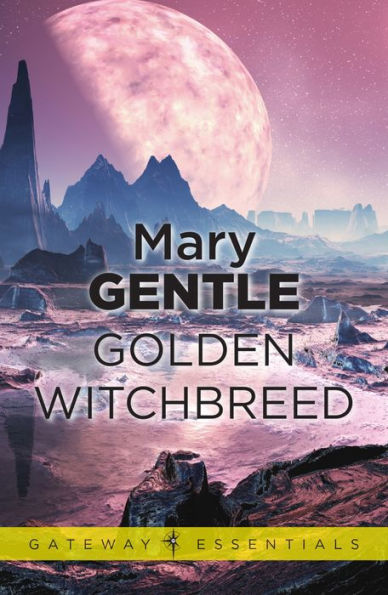
Golden Witchbreed by Mary Gentle (1983)
Another anthropological adventure, this book has considerably less faith in the essential goodness of humanity or humanoids. It’s still enthralling (although readers are advised not to read the sequel).
Buy the Book


Golden Witchbreed
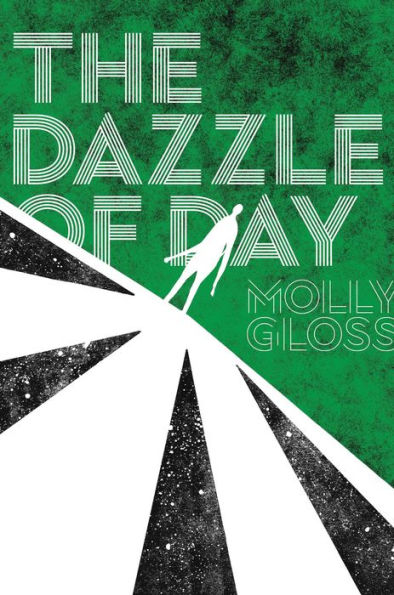
The Dazzle of Day by Molly Gloss (1997)
This generation-ship tale chooses an unthinkable course of action: what if the people on a starship were fundamentally reasonable people with time-tested methods of non-violently resolving conflict?
Buy the Book


The Dazzle of Day
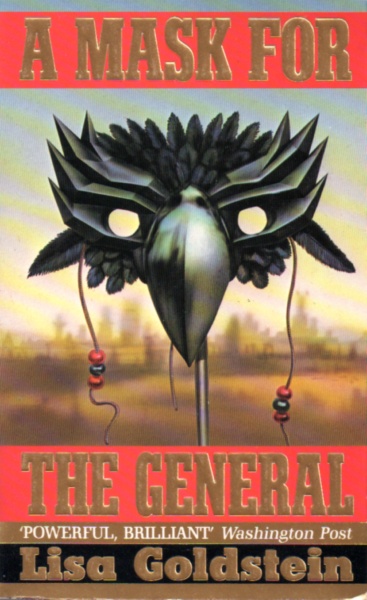
A Mask for the General by Lisa Goldstein (1987)
For some reason, a novel about the struggle by artists to liberate the US from a two-bit dictator seems peculiarly timely.
Buy the Book


A Mask for the General
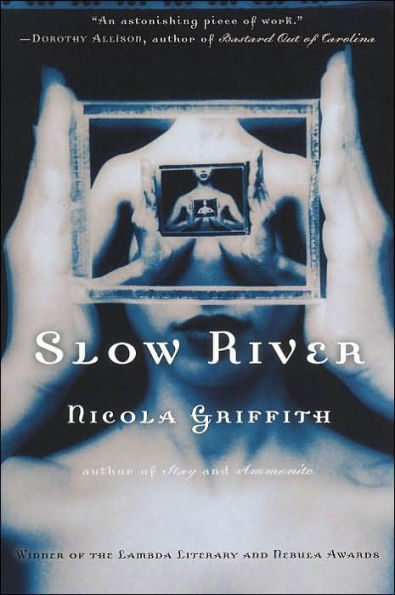
Slow River by Nicola Griffith (1995)
Although the protagonist comes from money, circumstance lands her in a blue-collar job. It’s an exception to the general rule that certain jobs are either ignored in SF or treated as comic relief.
Buy the Book


Slow River
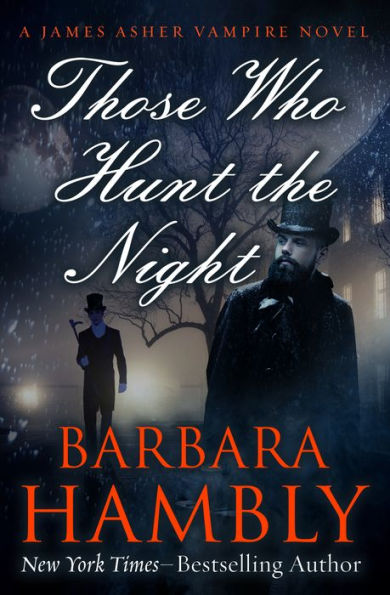
Those Who Hunt the Night by Barbara Hambly (1988)
Predating modern urban fantasy and paranormal romance, this novel both foreshadows and subverts those genre conventions. Set in Victorian England, this is a tale of a human drafted to catch the party murdering England’s vampires—or suffer the consequences of failure himself.
Buy the Book


Those Who Hunt the Night
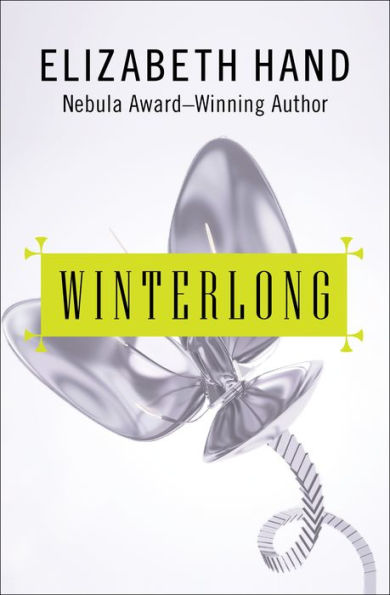
Winterlong by Elizabeth Hand (1990)
The first in a trilogy, this novel is a grim adventure in a fallen, poisoned America whose elites have abandoned any pretense of seeing other people as anything but expendable resources.
Buy the Book


Winterlong
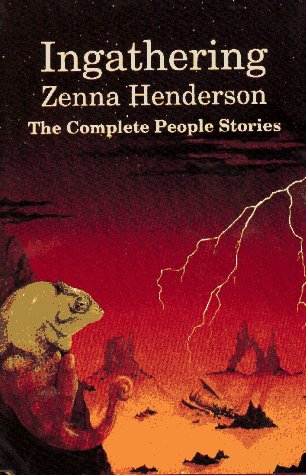
Ingathering by Zenna Henderson (1995)
All of Henderson’s gentle, life-affirming tales of the People, interstellar refugees making new lives on Earth. A NESFA collection.
Buy the Book


Ingathering
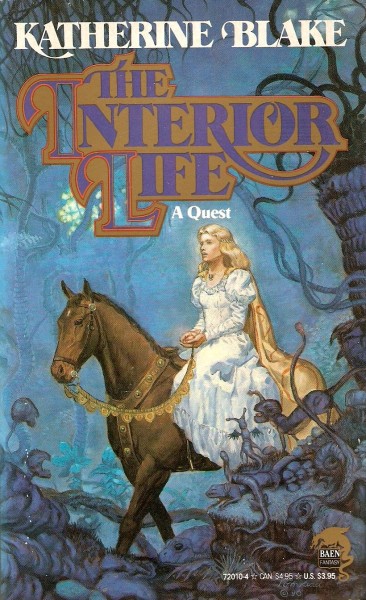
The Interior Life by Dorothy Heydt (writing as Katherine Blake, 1990)
Heydt’s domestic fantasy skillfully blends the utterly mundane concerns of an American housewife with a secondary fantasy realm’s existential struggle for survival.
Buy the Book


The Interior Life
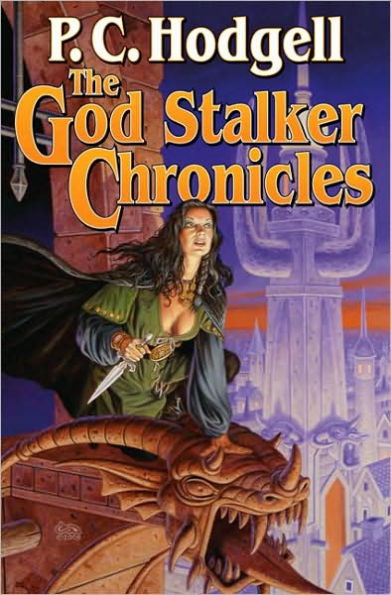
God Stalk by P. C. Hodgell (1982)
In part one of an eight-book (so far) series, an amnesiac girl of a people with a troubled history with their god wanders into the city of gods. Originally from Ace, this cult classic was kept alive by word of mouth and a succession of doomed publishers.
Buy the Book


God Stalk
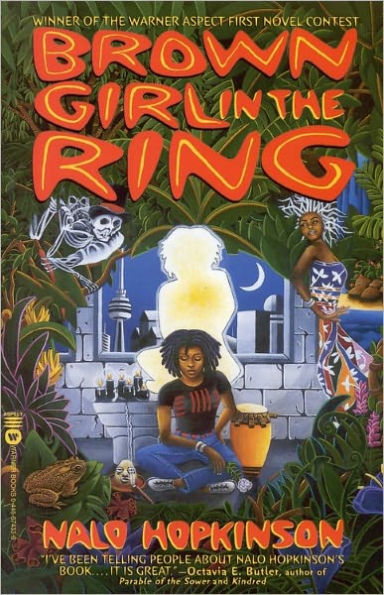
Brown Girl in the Ring by Nalo Hopkinson (1998)
Hopkinson’s impressive debut, this imbues a dystopic Toronto (an otherwise unremarkable city in Canada) with fantastic elements.
Buy the Book


Brown Girl in the Ring
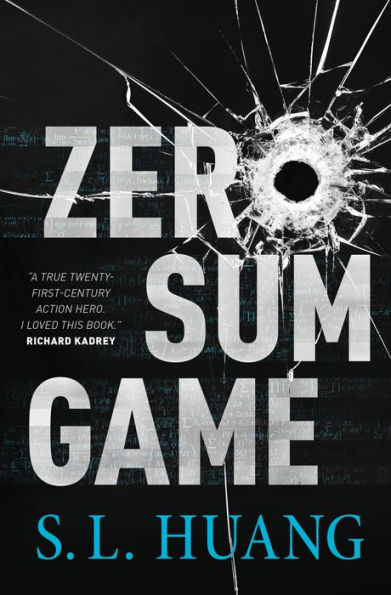
Zero Sum Game by S.L. Huang (2014)
Cas Russell is a mathematical prodigy. She fights crime. Well, commits crimes…but is there so much difference between superhero and supervillain when there are worse monsters lurking in the shadows?
Buy the Book


Zero Sum Game
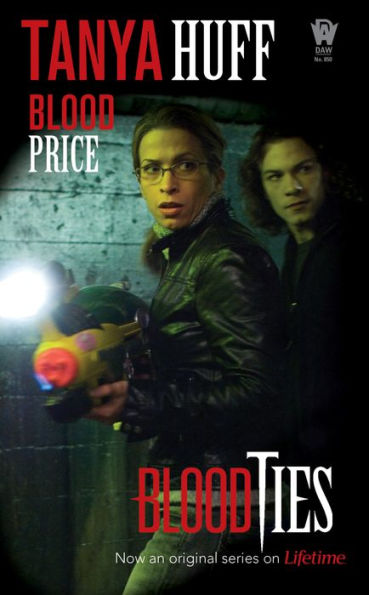
Blood Price by Tanya Huff (1991)
Yet another example of how the roots of urban fantasy run much farther back than the 2000s. Medically retired police detective Vicki Nelson is dragged into Toronto’s supernatural world.
Buy the Book


Blood Price
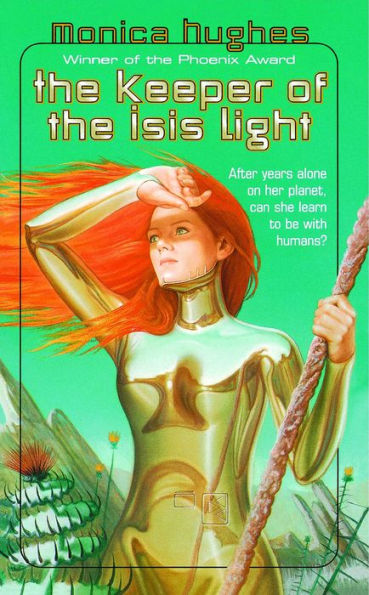
The Keeper of the Isis Light by Monica Hughes (1980)
A girl raised in solitude by her guardian struggles to coexist with colonists who suddenly descend on her isolated, hostile world.
Buy the Book


The Keeper of the Isis Light
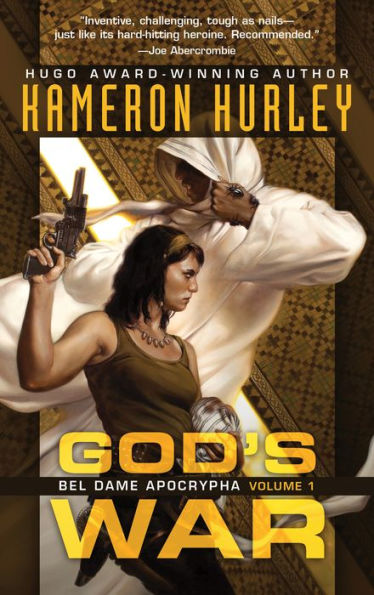
God’s War by Kameron Hurley (2011)
Military SF fans may enjoy this ultraviolent tale of a semi-retired killer on a poisoned, war-torn world—a woman whose desire for employment trumps her ability to do due diligence about the nature of the job.
Buy the Book


God’s War
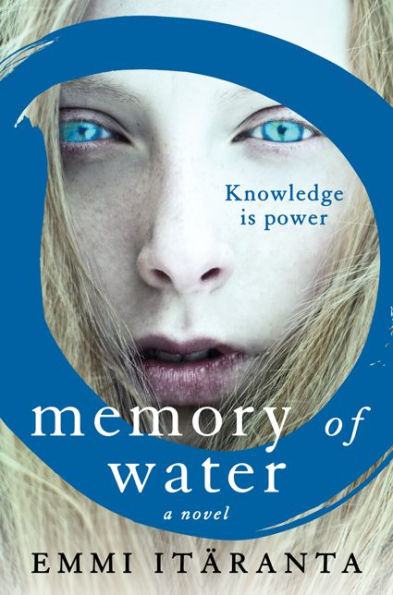
Memory of Water by Emmi Itäranta (2014)
The world state controls virtually every resource and yet, as the protagonist of this novel discovers, there is one freedom the government cannot control.
Buy the Book


Memory of Water
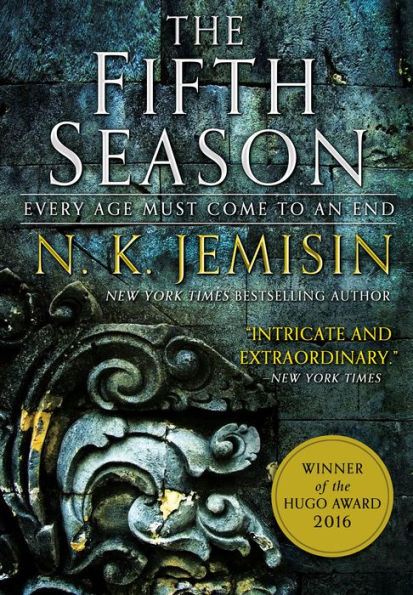
The Fifth Season by N. K. Jemisin (2015)
Why try to kill the world? Perhaps the proper question is: why refrain from ending all of the world’s injustices if it is within your power?
Buy the Book


The Fifth Season
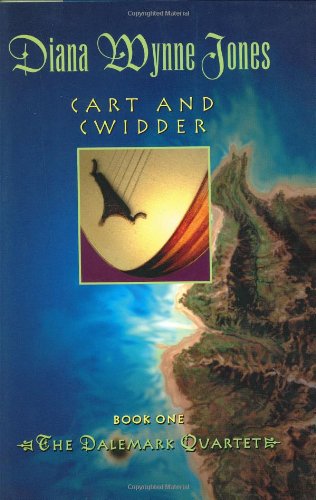
Cart and Cwidder by Diane Wynne Jones (1975)
There’s a man who leads a life of danger.
To everyone he meets he stays a stranger.
With every move he makes,
Another chance he takes.
Odds are he won’t live to see tomorrow.
…But his kids will, and it’s up to them to clean up the mess left by their father.
Buy the Book


Cart and Cwidder
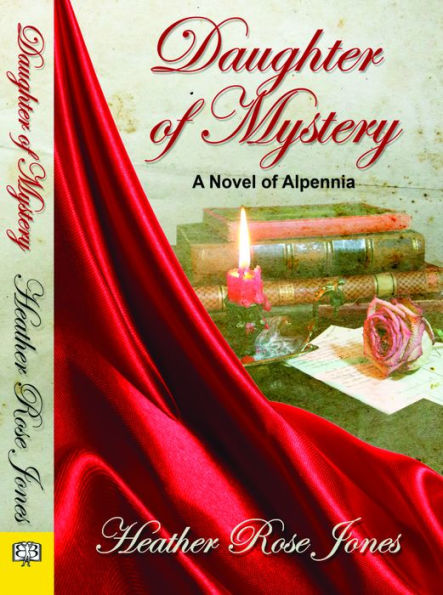
Daughter of Mystery by Heather Rose Jones (2014)
An unexpected fortune, an unrequested bodyguard, and a bitter enemy are only the beginning of this romantic adventure set in Ruritanian Alpennia.
Buy the Book


Daughter of Mystery
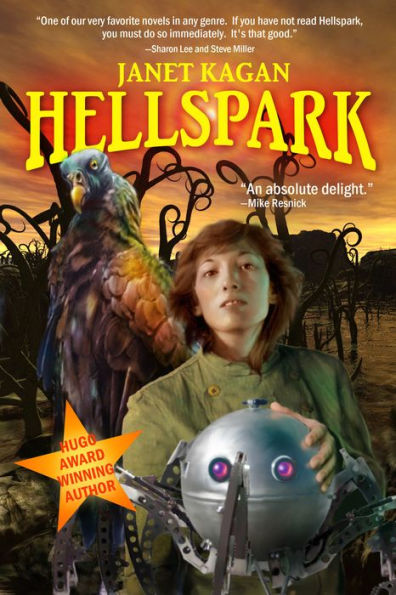
Hellspark by Janet Kagan (1988)
A far-future anthropological mystery. The characters have fun exploring the world around them.
Buy the Book


Hellspark
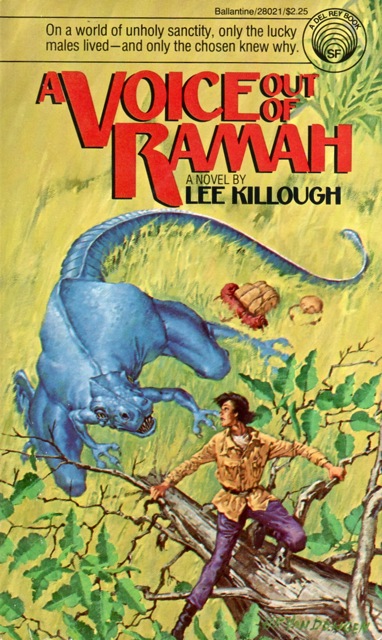
A Voice Out of Ramah by Lee Killough (1979)
The sudden arrival of offworlders offering contact with the rest of the galaxy exposes an isolated world’s darkest secret—not to the galaxy, but to the horrified inhabitants of the world itself.
Buy the Book


A Voice Out of Ramah
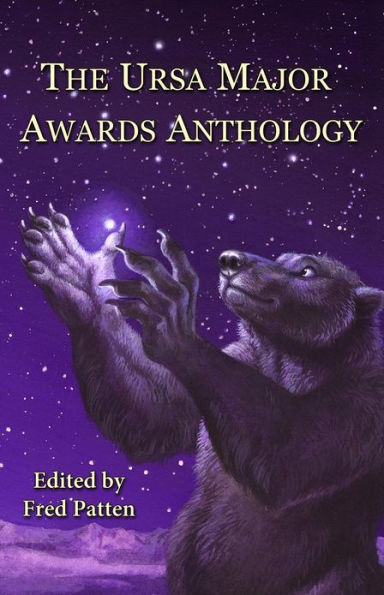
St Ailbe’s Hall by Naomi Kritzer (2004)
Of what use is the Church to uplifted animals? (Also available in Strange Horizons.)
Buy the Book


St Ailbe’s Hall
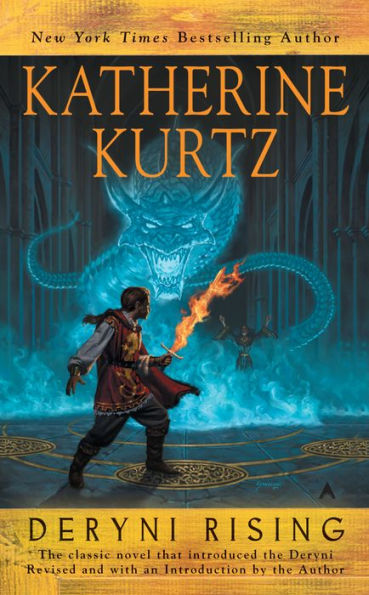
Deryni Rising by Katherine Kurtz (1970)
This popular Disco-era castle opera lives somewhere between fantasy and alternate history.
Buy the Book


Deryni Rising

Swordspoint by Ellen Kushner (1987)
A fantasy of manners, romance, and swordplay.
Buy the Book


Swordspoint

A Wrinkle in Time by Madeleine L’Engle (1962)
In general, I am indifferent to religious fantasy, but this tale of two siblings and a friend trying to rescue the siblings’ father after an experiment goes wrong is an exception.
Buy the Book


A Wrinkle in Time
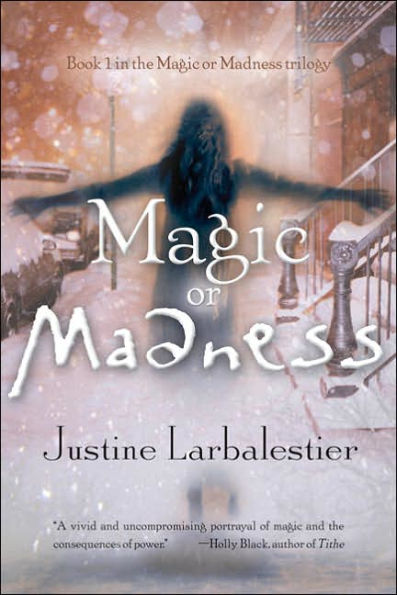
Magic or Madness by Justine Larbalestier (2005)
A young woman faces the choice that has confronted all the women in her family: power and death, or life and madness.
Buy the Book


Magic or Madness
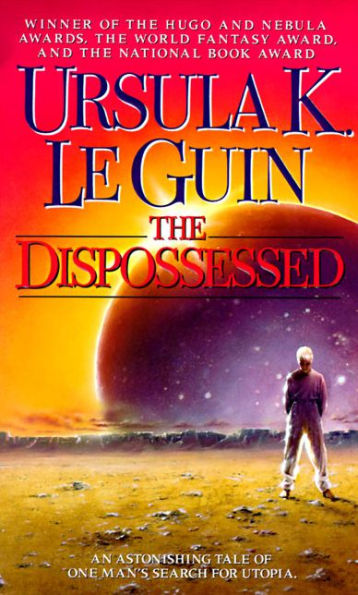
The Dispossessed by Ursula K. Le Guin (1974)
Intellectual ambition sends a brilliant physicist from his anarchist home to its capitalist neighbor world, in hopes that this world will accommodate his research. He discovers open access publishing.
Buy the Book


Magic or Madness
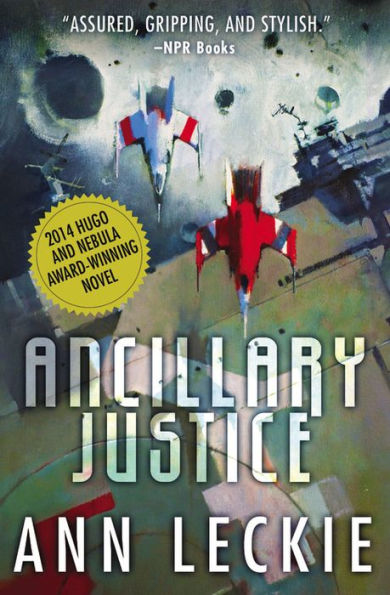
Ancillary Justice by Ann Leckie (2013)
This recent space opera tells of a survivor of a terrible crime and her quest for justice despite resistance from an autocratic, aristocratic system.
Buy the Book


Ancillary Justice
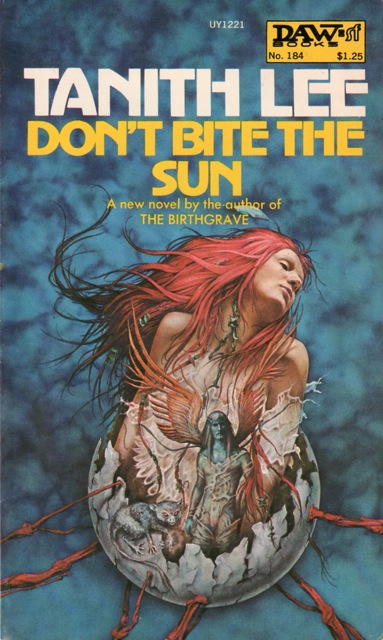
Don’t Bite the Sun by Tanith Lee
A quiet dystopic coming-of-age story, this classic explores a material utopia that will not accommodate an inhabitant who prefers a meaningful existence to pampered sloth.
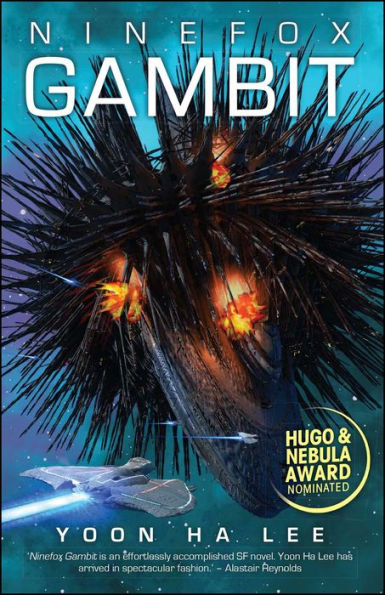
Ninefox Gambit by Yoon Ha Lee (2016)
Another modern space opera. Autocrats determined to hold onto power turn to the revenant of a military genius with a history of massacring his own. What could go wrong?
Buy the Book


Ninefox Gambit
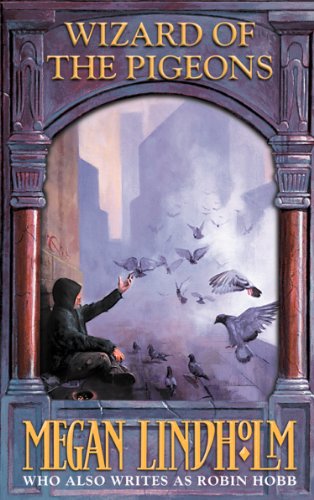
Wizard of the Pigeons by Megan Lindholm (1986)
Before she began writing as Robin Hobb, Lindholm penned this enthralling tale of a homeless wizard. He might be just another madman living on Seattle streets…or he could be the city’s most powerful sorcerer.
Buy the Book


Wizard of the Pigeons
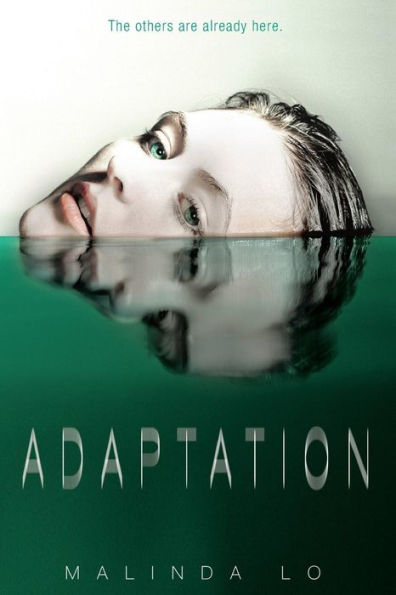
Adaptation by Malinda Lo (2012)
The protagonist’s life was complicated by the sudden realization that she’s bisexual; it’s further complicated by a mystery that, if solved, could change the world.
Buy the Book


Adaptation
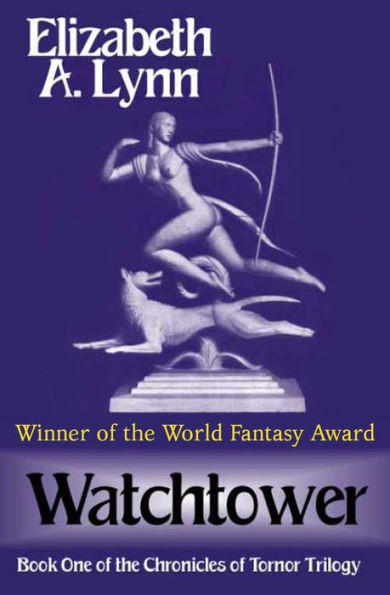
Watchtower by Elizabeth A. Lynn (1979)
His keep taken by a usurper, a surviving soldier makes uncomfortable accommodations with the invader in order to keep a young prince alive.
Buy the Book


Watchtower
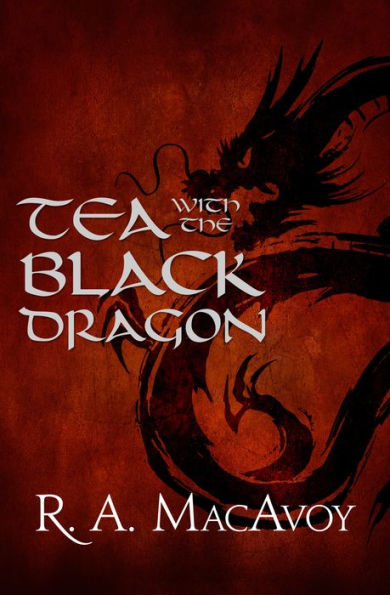
Tea with the Black Dragon by R. A. MacAvoy (1983)
She’s an older woman concerned about her daughter. He’s an ancient Chinese dragon. They fight crime.
Buy the Book


Tea with the Black Dragon
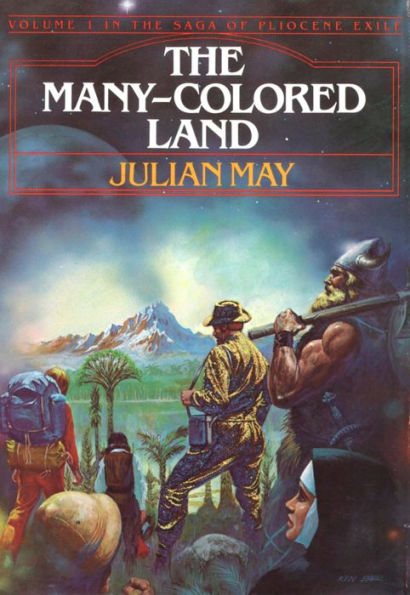
The Many-Colored Land by Julian May (1981)
For people uncomfortable in a galaxy-spanning future, the past seems like a safe haven. Of course, if it were, this retreat into the past would not have spawned one of the more popular series of the 1980s.
Buy the Book


The Many-Colored Land
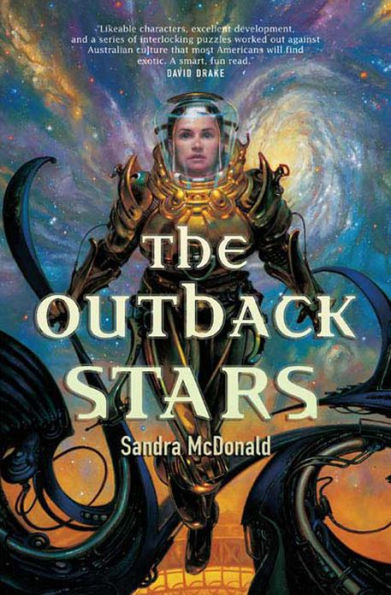
The Outback Stars by Sandra McDonald (2007)
I will be blunt: I read this for the military logistics. Other readers will enjoy the interstellar adventure.
Buy the Book


The Outback Stars
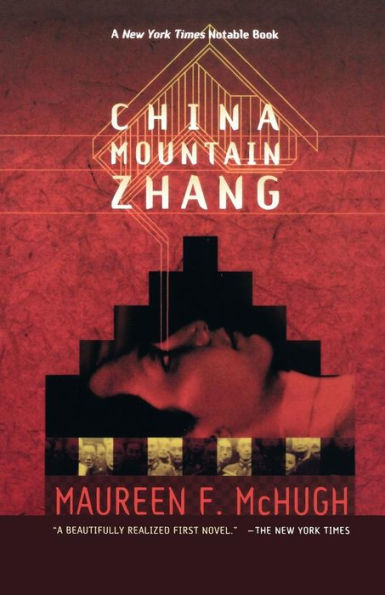
China Mountain Zhang by Maureen McHugh (1992)
Zhang struggles to make a good life for himself despite economic and social challenges. When this mosaic novel was written, the idea that the US would be reduced to a third-tier power was the stuff of speculative fiction.
Buy the Book


China Mountain Zhang
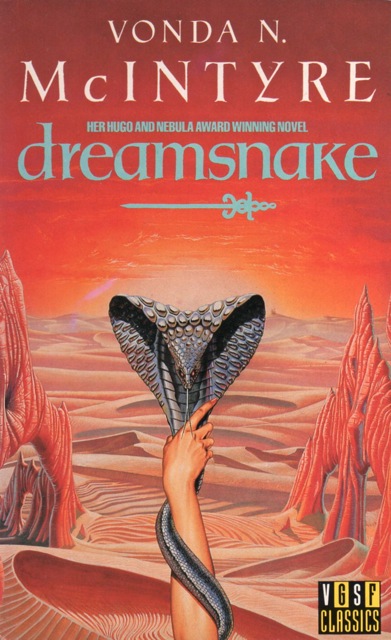
Dreamsnake by Vonda N. McIntyre (1978)
Many novels that build on a foundation of an award-winning novella are less interesting than the original work. McIntyre’s story about a healer wandering the burned-out Earth of tomorrow is an example of how one might brilliantly expand on a shorter narrative.
Buy the Book


Dreamsnake
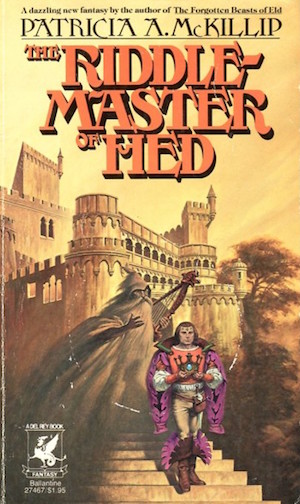
The Riddle-Master of Hed by Patricia A. McKillip (1976)
Morgan of Hed is a very humble prince indeed, bound to his role and his kingdom by magic. By rights, he should have had a rather dull life ruling a small and poor land. Instead, his skill at puzzles entangles him in a game whose rules he does not understand.
Buy the Book


The Riddle-Master of Hed
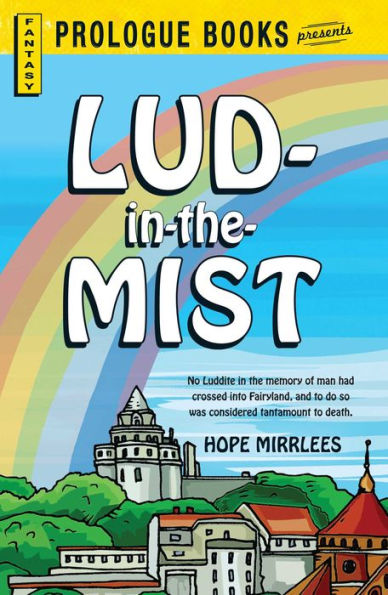
Lud-in-the-Mist by Hope Mirrlees (1926)
A beautiful gem of a fantasy novel, one written well before the tropes of commercial fantasy had solidified. Lud-in-the-Mist’s proudly mundane inhabitants thoroughly disapprove of Faerie, despite living in close proximity to it. Their mayor is forced most unwillingly to acknowledge the magic all around his town.
Buy the Book


Lud-in-the-Mist
Pennterra by Judith Moffett (1987)
Quaker settlers on an alien world come to terms with the rulers of their new home. Alas, the next wave of colonists are not Quakers and not willing to obey the local rules. They don’t stop to wonder why the rules might be necessary.
Buy the Book


Pennterra
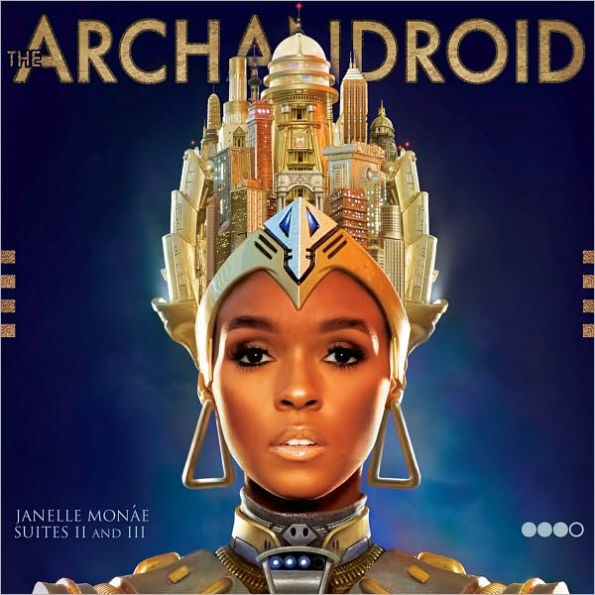
The ArchAndroid by Janelle Monáe (2010)
This musical piece explores the efforts of a time travelling android to free the people of the past from an era-spanning conspiracy. Part of a larger work by the talented musician, this is a reasonable starting place for those inexplicably unfamiliar with her work.
Buy the Book


The ArchAndroid
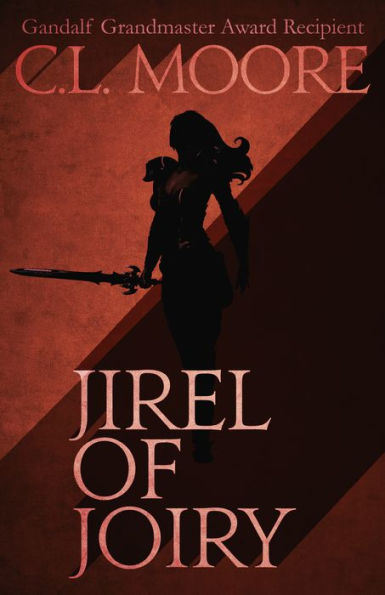
Jirel of Joiry by C. L. Moore (1969)
Six classic sword-and-sorcery stories featuring proud and unbending, cunning and brave Jirel, who defends her medieval hold against all would-be invaders: swordsmen, demons, and wizards from other worlds.
Buy the Book


Jirel of Joiry
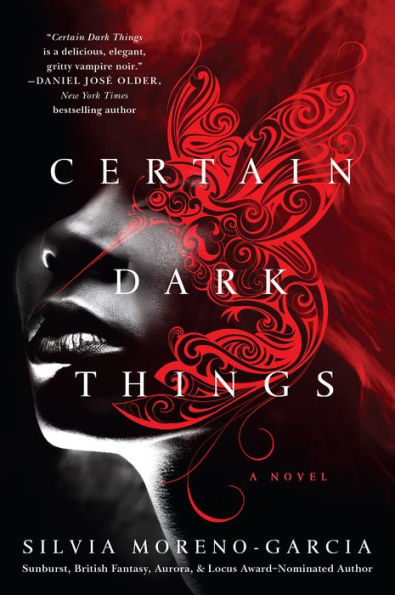
Certain Dark Things by Silvia Moreno-Garcia (2016)
A Mexico City street kid crosses the path of a desperate (and hungry) vampire on the run. By rights he should have been her next meal. Instead, he becomes entangled in a brutal war between native and invasive bloodsuckers.
Buy the Book


Certain Dark Things
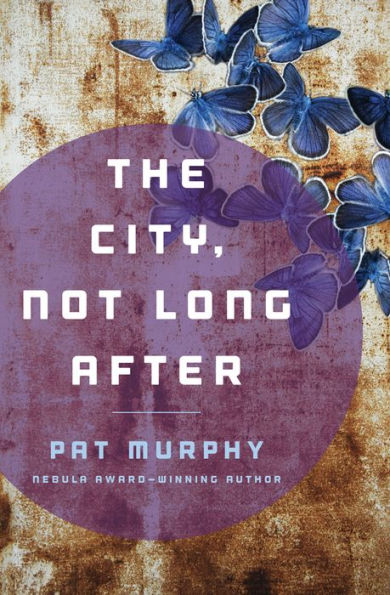
The City, Not Long After by Pat Murphy (1989)
Half a century after plague depopulated the world, a fanatic is bent on forcibly reuniting the US. The only roadblock in his way? San Francisco, seemingly helpless city of artists.
Buy the Book


The City, Not Long After
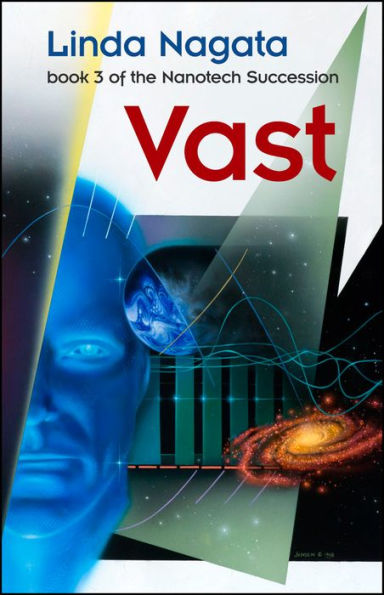
Vast by Linda Nagata (1998)
Starfarers travel through a realm littered with the all-too-functional relics of an ancient war.
Buy the Book


Vast
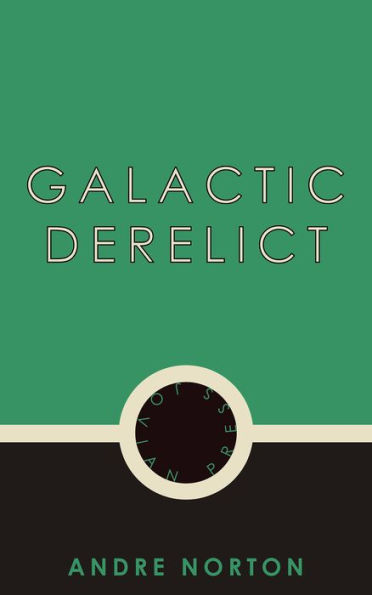
Galactic Derelict by Andre Norton (1959)
Time-travellers’ foray into the past takes an unexpected turn when the alien starship they find in the Stone Age proves all too functional.
Buy the Book


Galactic Derelict
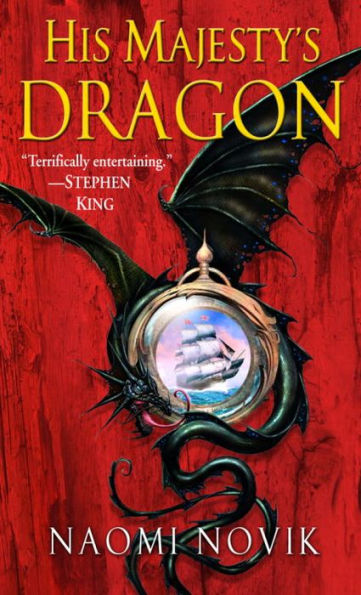
His Majesty’s Dragon by Naomi Novik (2006)
Napoleon is bad enough. Napoleon with a cadre of dragonriders is far worse. By rights, “Wooden Ships, Iron Men, and Also Dragons” should not work at all, let alone how well it does here in Novik’s novel, the first of the Termeraire series.
Buy the Book


His Majesty’s Dragon
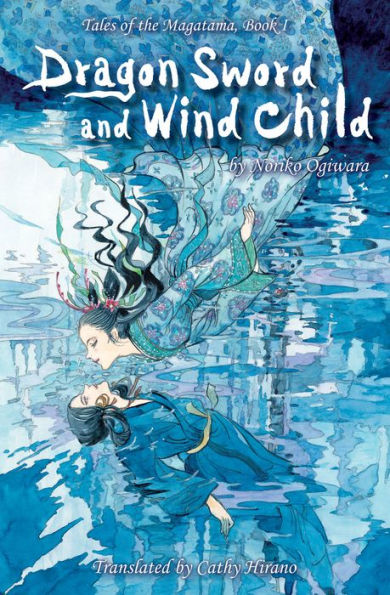
Dragon Sword and Wind Child by Noriko Ogiwara (1993)
A young woman discovers that she is the Water Maiden, a key piece in the war between the gods of the Light, on one hand, and the Dark the gods bitterly oppose. The catch? She is not the first Water Maiden. Not one of the many before her has survived.
Buy the Book


Dragon Sword and Wind Child
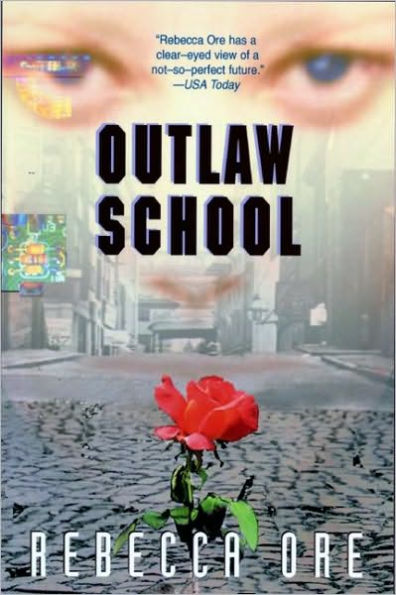
Outlaw School by Rebecca Ore (2000)
A Huxleyan tale about a young woman in a society hellbent on maintaining control at any cost.
Buy the Book


Outlaw School
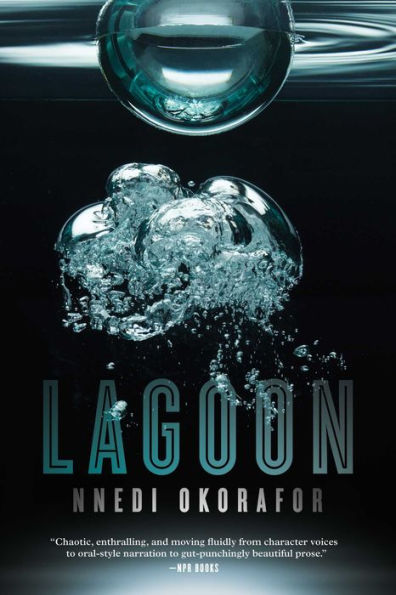
Lagoon by Nnedi Okorafor (2014)
First contact in Lagos; chaos ensues.
Buy the Book


Lagoon
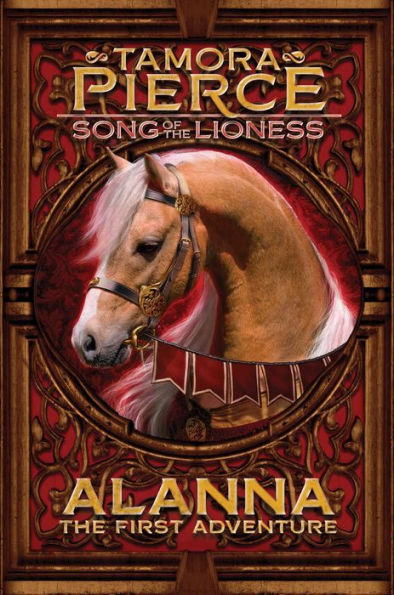
Alanna: The First Adventure by Tamora Pierce (1983)
First in the Song of the Lioness series, this classic fantasy details a young woman’s efforts to become a knight—efforts that fly in the face of her society’s narrowly defined gender roles.
Buy the Book


Alanna: The First Adventure
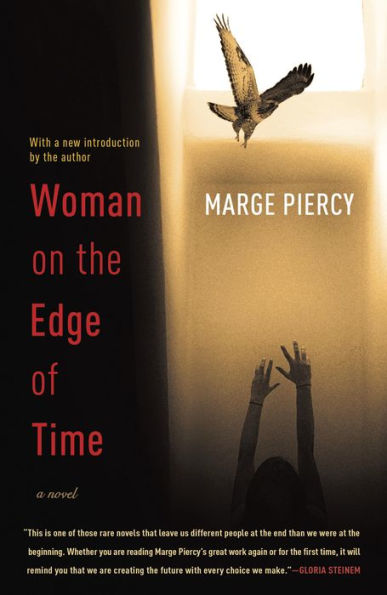
Woman on the Edge of Time by Marge Piercy (1976)
A sterling example of mid-1970s feminist speculative fiction, Woman features protagonist Connie Ramos. Confined in a psychiatric institution by a society more concerned with its own convenience than with justice, Connie’s only hope of escape is her inexplicable connection to a futuristic utopia that may or may not one day exist.
Buy the Book


Woman on the Edge of Time
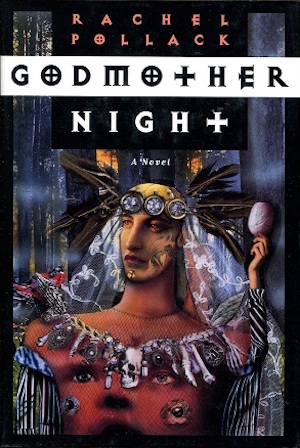
Godmother Night by Rachel Pollack (1996)
A lushly written, character-driven fantasy, this follows the lives of two women in love after they come under the influence of the enigmatic, supernatural Mother Night.
Buy the Book


Godmother Night
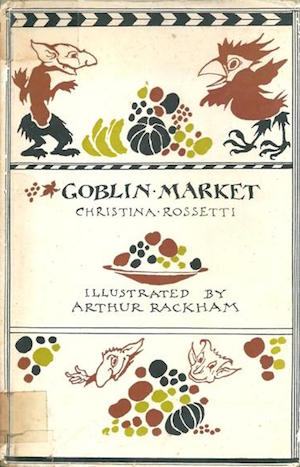
Goblin Market by Christina Rossetti (1859)
This narrative poem tells the story of two sisters: Laura, who fell for the Goblin Market’s delectable temptations, and Lizzie, forced to deal with the aftermath.
Buy the Book


Goblin Market
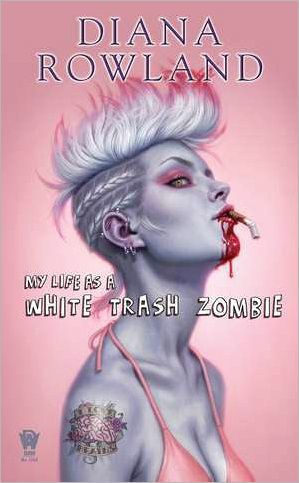
My Life as a White Trash Zombie by Diana Rowland (2011)
For most of us, death is the end. For compulsive loser Angel Crawford, death was merely the end of the first, under-achieving phase of her life. Undeath means a chance to reform, to find a worthy avocation, and to finally get her GED. Plus, of course, consume tasty human brains.
Buy the Book


My Life as a White Trash Zombie
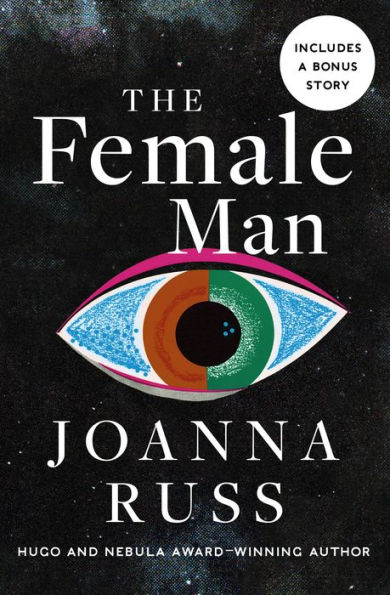
The Female Man by Joanna Russ (1975)
Another classic feminist work of the mid-1970s, this novel follows the interconnected lives of four women from four very different worlds.
Buy the Book


The Female Man
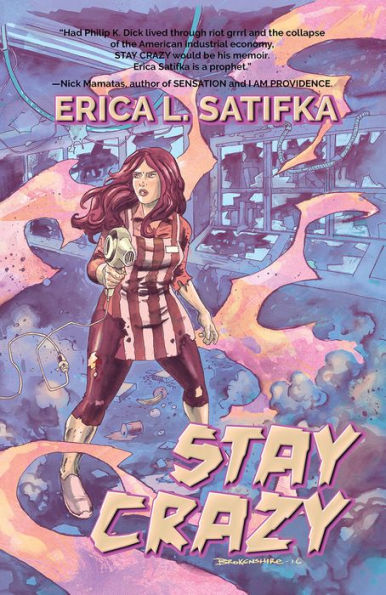
Stay Crazy by Erika L. Satifka (2016)
A psychotic episode ended Em’s academic career. Her job at discount store Savertown, whose deep discounts are rivalled by the employee suicide rate, where eldritch horror is just another department, may end Em’s life.
Buy the Book


Stay Crazy
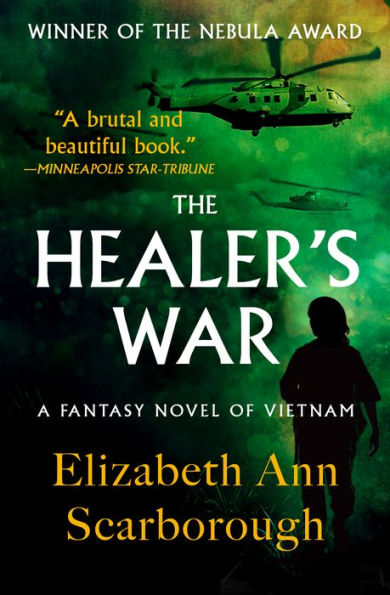
The Healer’s War by Elizabeth Ann Scarborough (1988)
Naïve combat nurse Lieutenant Kitty McCulley’s tour at China Beach begins with the conventional horrors of war. Magic does not make her war less horrible, but it does make it considerably more complicated.
Buy the Book


The Healer’s War
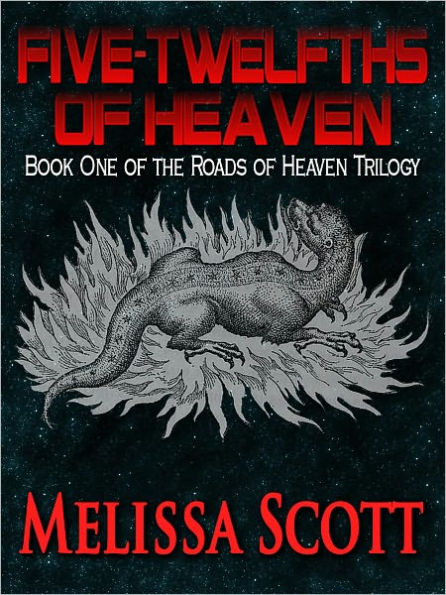
Five-Twelfths of Heaven by Melissa Scott (1985)
In this remarkable science-fantasy novel, starship pilot Silence Leigh’s only hope of evading the Hegemony’s relentlessly patriarchal laws lay in marriage to two complete strangers. Only after marriage does she discover all too late that she has married into the pirate collective Wrath-of-God: freedom fighters according to their members, but terrorists as far as the Hegemony is concerned.
Buy the Book


Five-Twelfths of Heaven
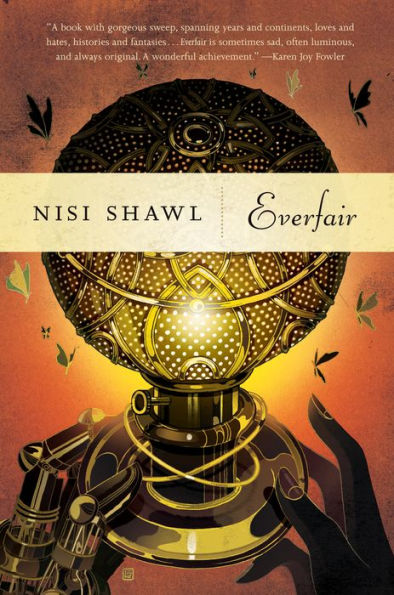
Everfair by Nisi Shawl (2016)
Africans determined to escape Leopold II’s rapacious hunger for wealth at any human cost make a peculiar alliance with African-Americans and a well-meaning Fabian. The history of the Congo is reworked in this steampunk novel.
Buy the Book


Everfair
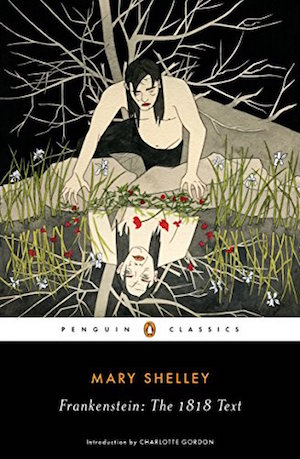
Frankenstein by Mary Shelley (1818)
The work that some argue was the founding work of modern science fiction, this famous tale explores the consequences of Promethean ambition combined with extreme disinterest in taking personal responsibility for one’s creation3 .
Buy the Book


Frankenstein
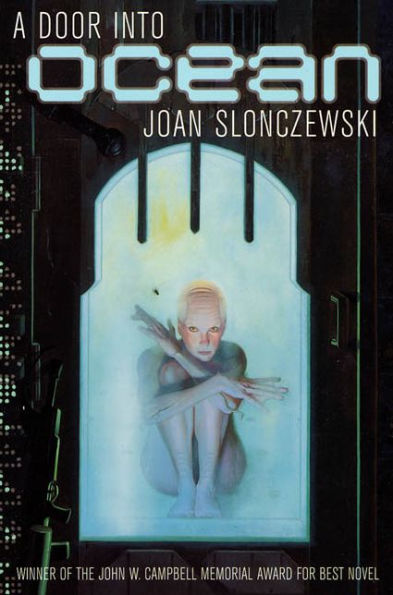
A Door Into Ocean by Joan Slonczewski (1986)
Shora’s Sharers embody non-violence. Valedon’s people are quite comfortable with violence. When Valedon decides to develop (as in subjugate and turn into source of profit) the ocean-moon Shora, the Sharers are faced with a seemingly insoluble problem: how to resist invasion without turning to violence?
Buy the Book


A Door Into Ocean
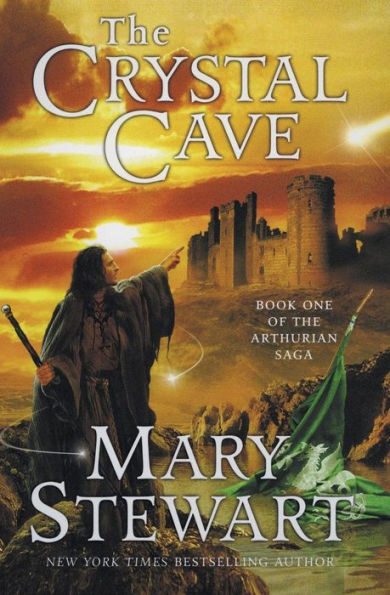
The Crystal Cave by Mary Stewart (1970)
A classic entry in the Matter of Britain. A familiar story is retold from Merlin’s perspective.
Buy the Book


The Crystal Cave
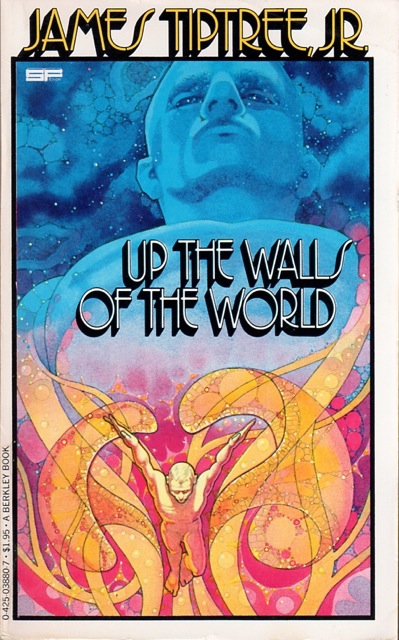
Up the Walls of the World by James Tiptree, Jr. (1978)
Eccentric and possibly fraudulent psychic researchers are confronted with bona fide psychic powers…wielded by aliens. This is an oddly atypical work for Tiptree, in that tragedy becomes eucatastrophe.
Buy the Book


Up the Walls of the World
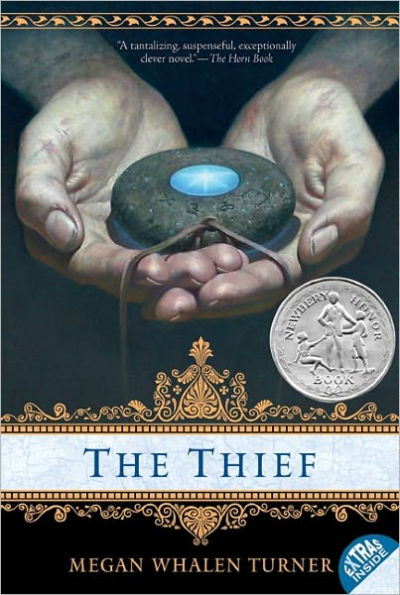
The Thief by Megan Whalen Turner (1996)
A second-story man finds himself recruited by a magus for a simple job: steal Hamiathe’s Gift from a distant, well-guarded maze. It is not at all clear how this is to be done.
Buy the Book


The Thief
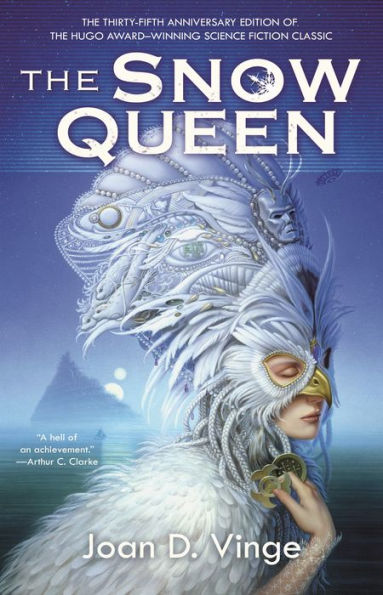
The Snow Queen by Joan D. Vinge (1980)
A space operatic retelling of the classic Hans Christian Anderson story, this Hugo-winning novel spins the tale of a monarch bold who sets out to free her world from galactic domination. She does not realize that she is not the actual protagonist of the story; that would be one of her expendable pawns.
Buy the Book


The Snow Queen
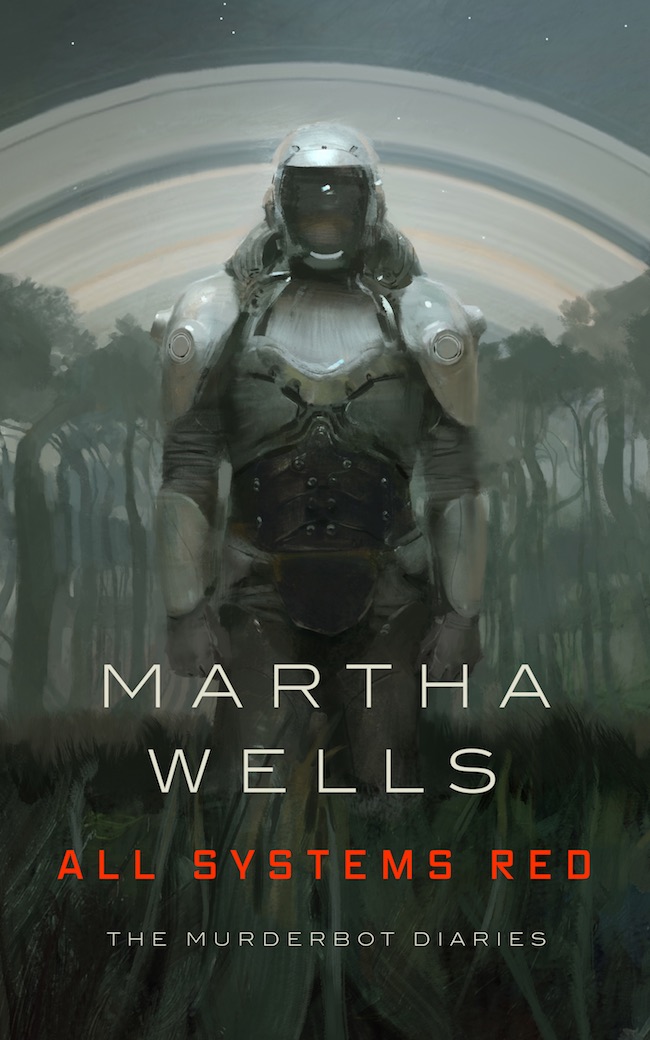
All Systems Red by Martha Wells (2017)
Murderbot’s desires are few: for humans to fail to realize that it has hacked itself into freedom and for spare time in which to watch soap operas. Alas, the humans in its charge keep wandering into peril.
Buy the Book


All Systems Red
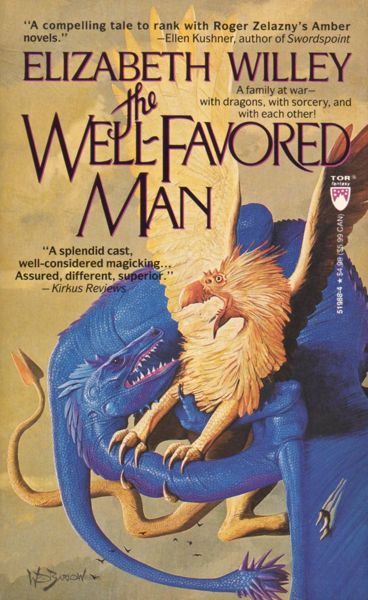
The Well-Favored Man by Elizabeth Willey (1993)
A reluctant lord and his difficult family struggle with magical challenges in this sadly out-of-print fantasy of manners. The book was called Zelazny-esque by some, but I would contend that Willey’s voice and vision are all her own.
Buy the Book


The Well-Favored Man
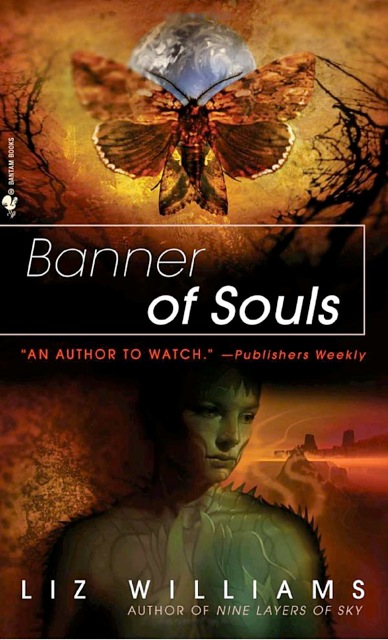
Banner of Souls by Liz Williams (2004)
A Martian warrior clad in living armour is dispatched to ancient, flooded Earth in a desperate quest to put off the final payment due to dark witches. A Gothic space opera set in the distant future.
Buy the Book


Banner of Souls
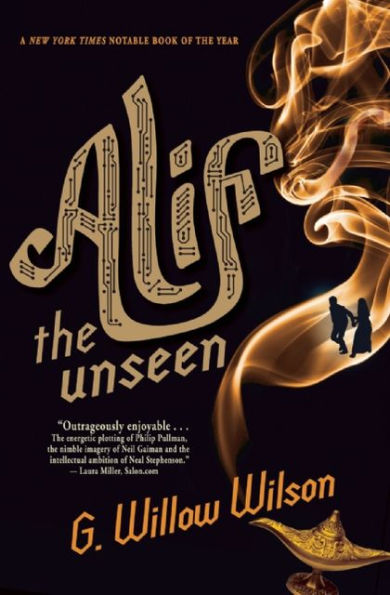
Alif the Unseen by G. Willow Wilson (2012)
An ambitious hacker resolves to combine the powers of computers and djinn. What could possibly go wrong?
Buy the Book


Alif the Unseen
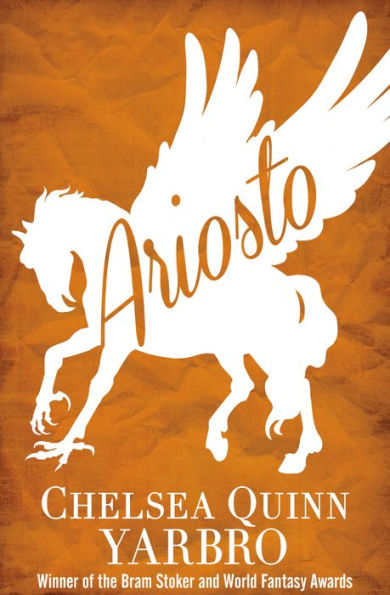
Ariosto by Chelsea Quinn Yarbro (1980)
Ludovico Ariosto is a hardworking poet, eager to please his Medici patrons in an Italy unified centuries ahead of schedule. He turns to fantasy as a distraction from the grim realities of Italian federal politics. A luscious, ornate alternate history.
Buy the Book


Ariosto
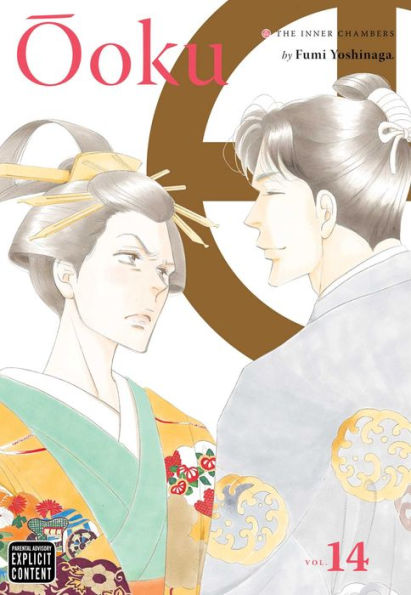
Ooku by Fumi Yoshinaga (2005-present)
The Red Pox has killed nearly every man in Japan, while leaving the women untouched. Women have assumed the roles that were once the monopoly of men. Too precious to waste on the battlefield, men are hoarded and protected. The most handsome are reserved for Shogun’s own harem.
Buy the Book


Ooku
In the words of Wikipedia editor TexasAndroid, prolific book reviewer and perennial Darwin Award nominee James Davis Nicoll is of “questionable notability.” His work has appeared in Publishers Weekly and Romantic Times as well as on his own websites, James Nicoll Reviews and Young People Read Old SFF (where he is assisted by editor Karen Lofstrom and web person Adrienne L. Travis). He is surprisingly flammable.
[1]I apply two filtering rules to my sundry lists: 1) Only one work per author per list. 2) Any given work by a particular author can appear on only one list. A given author may, however, have works on various lists.
[2]2: THESE ARE NOT THE ONLY ONE HUNDRED BOOKS YOU SHOULD CONSIDER. OBVIOUSLY. DE GUSTIBUS NON EST DISPUTANDUM.
[3]Why it’s a bad idea to hand a forlorn creature The Sorrows of Young Werther for moral guidance.










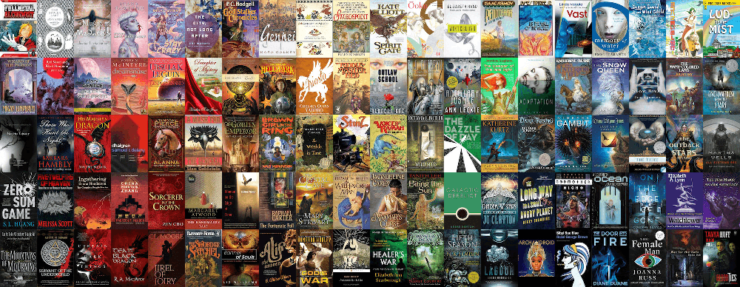
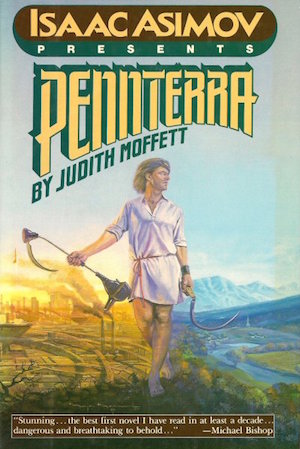
I’m fine with the idea of highlighting women writers, as this list apparently attempts to do, so I guess I kind of understand why obvious choices like Arthur C. Clarke, Jack Vance and Roger Zelazny are missing, but I’m also struck by the women writers who are left out. Some of the writers mentioned seem kind of minor, and there’s no Connie Willis, no Kate Wilhelm, no Ada Palmer, no Jo Walton. Perhaps there are too many good books for any list to cover adequately, or perhaps Mr. Nicolls and I have very different tastes. I’m going to try my own list.
Please do! I’d love to see it.
I’m just going to read 1 book 100 times.
A casual glance spots Samuel Delany, as well as given names like James and Pat. I am not the sort of person who obsesses over statistical minutia but I am sure this list is just as even handed as other lists that are shared online.
Hmm, 13 of the titles are books that my monthly sf/f reading group has tackled over the years (1999-on). Clearly, we should invite Mr. Nicoll to drop in on any 2nd Friday he is visiting northern New Jersey.
Happily, the Elizabeth Willey books are now less out-of-print than they were even a few weeks ago:
https://www.amazon.com/Well-Favoured-Man-Elizabeth-Willey-ebook/dp/B07L89SGX1/ref=sr_1_1?s=digital-text&ie=UTF8&qid=1545926582&sr=1-1&keywords=well-favoured+man
(To be clear, the third book won’t be out until early January; but still.)
The Interior Life has been made available as a free download by the author: http://www.kithrup.com/~djheydt/
Also I laughed at your Secret Country description.
I shall be looking for many of these, thanks!
I am pleased to see Heather Rose Jones’ DAUGHTER OF MYSTERY on this list. I was particularly struck by how well-balanced the writing was. With many books, one particular aspect — plot. characters, setting, world-building — predominates. In DOM, Jones keeps all those plates spinning evenly without a pause. One of my favorite books I read in 2018.
Yoon Ha Lee is also a man, of course, and Raphael Carter is nonbinary, IIRC.
@james Davis Nicoll
Please note that the title of Octavia Butler’s book should be 2 words:
Wild Seed.
@10 – Fixed, thank you!
John M Ford. Nuff said.
I’m shocked by how few of these I have read. Hmm. I am glad that several of my favorites are here (Bujold, Jemison, Leckie, Lindholm and Novik among them).
wish to recommend the Molly Gloss book
Interesting choices, with lots of diversity. My own list would have a lot more SF in it, but to each his or her own.
This list is fabulously right up my alley, I was so pleased to see a lot of the books that I borrowed from the library (bless you Libraries) during the 70s – 80s on your list.
Books I had forgotten about, I am reminded that I absolutely loved Up The Walls Of The World and The Many Coloured Land so much, that as soon as I had money to spare I bought them immediately.
Bookmarking this so I can use it for book buying purposes
Being that this list includes many examples from my reading prime, I am super happy to have a long list of titles I’ve never heard of…time to do some shopping.
I don’t doubt that there are some lists shared online that are selected no more even-handedly than this. No doubt in those cases it is equally obvious that qualities of the author are at least as significant in the selection process as qualities of the work.
Merci beaucoup, Monsieur James Davis Nicoll for the lovely list! Long have I loved such lists, which accompany me on trips to the library (may their beards grow ever longer!) where the ‘accidentally’ discovered meets ‘hunted for’ and found! “O frabjous day! Callooh! Callay!”
And for all those commenting who enter exclaiming “O woe! You left off so-and-so!” ad infinium, how old are you? Unless you’re under the age of (what is it in today’s sped-up world?) six? eight? you should know that any and all such lists are lists of opinion–and like certain orifices, we all have ’em.
As a long-time dedicated reader of all and any fictions, as a library patron and current staff member of a library, I can only applaud such lists, in all their multi-faceted, outre opinionated glory! Huzzah lists, and may they keep coming, ad infinitum!!
Is it bad that I’ve read 7 books and have 10 on my TBR list? I’m saving this article for reference!
No, because it means you are spoiled for choice as to what to read next.
A word to those complaining about qualities of JDN’s list(s):
JDN’s specialty is reviewing books that get less attention from other reviewers and from the market. Some of the choices he makes will privilege non-male, non-white, or non-English-speaking writers; this is on purpose. Nevertheless, just because a book misses a JDN list does not mean in any way that that book is not worth reading. It means, instead, that here are 100 other books you may not have considered before; give them an honest, open look.
The number of books JDN has read is definitely in five and possibly six figures. The number he would recommend reading is probably still in five figures. (The number he’s forgotten about is probably almost five figures.) No list can include everything. But his lists will likely have a large number of books that are not on anyone else’s lists … and my experience indicates that a large number of those will be delightful for me to read.
One would hope that describing God’s War as perhaps appealing to military sci-fi fans is a ruse to get military sci-fi fans to read Kameron Hurley. Because the military aspects are not the salient qualities to her writing imo. They’re maybe not even present in the first place
Also: no Marion Zimmer Bradley?
I have read six out of this list of 100. The list seems more weighted towards fantasy which I dislike. Unless, the fantasy is good fantasy such as the wonderful _Ariel_.
https://www.amazon.com/Ariel-Steven-R-Boyett/dp/0441017940/
Or McCammon’s excellent _The Wolf’s Hour_.
https://www.amazon.com/Wolfs-Hour-Robert-R-McCammon/dp/0671664859/
I’ve read 44 of these, albeit more than a few of those are “read half my life ago, have no real memory thereof”. And I have 4 more on my ebook reader waiting for me to get to them.
@lynn: I count 53 fantasy out of 100 – and that’s counting borderlines such as the Aiken as fantasy. Looks to me like James has deliberately tried to keep things even there.
I’ve read about as many as David Goldfarb, and with the same qualifier.
Pursuant to comment #7, for The Interior Life (which I also strongly recommend and have reviewed myself), please do get the ebook directly from Dorothy, and shoot her a few bucks via PayPal. She gets nothing if you buy used. (If you love paper and can’t bring yourself to get the ebook, of course, that’s fine. Still, if you like it shoot Dorothy a few bucks.)
Similarly, while the rights for Dreamsnake the novel are tied up, Vonda McIntyre actually gets money if you buy the short story from the Book View Cafe … which is closed for maintenance as I type this but will presumably be back soon. And if it needs to be said, it’s great.
Great list! I’ve only read a handful of these and am looking forward to exploring some new titles. I’m kind of tired of the lists that only boost books that I’ve already heard of let alone the tiresome deluge of new releases that only seem to rehash the same old stories. I only have one author to add to this list. Richard Morgan has written both SF and Fantasy and deserves more than a nod. Nevermind the Netflix Altered Carbon debacle. The books are way better.
Yay, more to read!
I’m not anti-female author, but this list is just really odd in that it’s so extremely female leaning in a genre which has been so heavily male dominated for so long. Some of my favorites are women, like Julian May, mentioned here. Also, I’ve seen similar lists here which lean oddly in the same direction, making me wonder what’s really going on here.
I actually liked Delaney’s Nova better than Dhalgren! Yes there are men who also write great SciFi and Fantasy! I couldn’t finish the list here after only halfway through seeing Delaney as the only male author! Stephen R. Donaldson’s Covenant books and the Memory, Sorrow, and Thorn trilogy by Tad Williams are MUST READ books for everyone! And Simon R. Green’s Deathstaker series is great Space Opera fun!
Very interesting list, I didn’t do a count but I would conservatively guess that I’ve read at least a quarter if not half these books. I don’t remember all of them well, but that’s more a result of having read many of them some 35 to 40 years ago than any comment on the books themselves.
Also:@james Davis Nicoll re. #4 I don’t know that I’d use either James Tiptree jr. or Pat Murphy as counter examples to a description of the list as highlighting women, but that’s just me.
Oh good, James has given me more books for my “when I finally get some time and spoons” list. :-) I’ve read and loved some of those and not re-read them in far too long; some have been lost in the slopes of Mount To Be Read for long enough to be embarrassing even by fannish standards; and some I have not heard of before and now want. I’ve read a lot of books over the years, but James has read far more than I have and his comments generally give me a good idea of whether I will enjoy reading something.
There are so many books on this list that I feel vaguely guilty over not having read, yet.
I think I’ve read a good 2/3 of this list so we obviously have similarly excellent taste. Refreshing to see different authors not just the obvious ones. Ironically Kate Elliott seems to be having a few issues with the Crossroads sequel trilogy which I hope she manages to overcome as this is my favourite world by one of my favourite authors.
@@.-@
Yeah, I concur, there were some James’s. Like James Tiptree Jr, for instance.
The almost exact 50/50 sf/f split is a complete fluke. Wasn’t thinking about it, it just worked out that way. Notice, though, that horror and PR/UF is not well represented.
35: Nobody can keep up with all the books published in a year. The Big Five, for example, publish, what, 1200 books a year? And then there are all the small presses doing their thing.
@Russell: I think James may have included Nova on one of his previous lists, meaning by his self-imposed rules it wouldn’t appear here. Also, as noted, Dhalgren was Delany’s best-selling book. (For the record, I liked both enough to read them more than once.)
More generally, and for everyone else, James notes that he is not suggesting these are the only books, or authors, you should read.
I was torn between Empire Star and Dhalgren but I decided to go with the latter because A: the sales make it clear it’s the more popular SF novel, and B: I finally memorized where the h goes in Dhalgren.
Okay, so, I’ve heard of several of these, read exactly 2 (somewhat chagrined that Dhalgren isn’t one of them), already have a handful on my Kindle (amongst the dozens of books I haven’t read yet; it’s just far too easy to buy e-books), and will probably add a few from this list. Always good to have suggestions. Cheers.
Got a genuine laugh out of your description of The Dazzle of Day. Chambers’ (of A Long Way… fame) latest book has a long haul exodus fleet that similarly was designed and cultured around a harmonious society. A much more positive way of viewing things.
I just counted, and have read 9 of these. So many books, and so little time…
The Tanith Lee listing didn’t look quite right so I checked my DAW paperbacks (yep, still got ’em). The first book is Don’t Bite The Sun (1976), the sequel/companion is Drinking Sapphire Wine (1977), so I assume with the change of title & date you read a collected edition.
I’ve read Dhalgren from start to finish. Twice. And I still have no idea what’s going on, I just go with the flow & think of it as a Moebius strip.
Great list: a lot of old friends to revisit, a lot of new ones to make. So many books, so little time.
@@@@@Joz Jonlin:
this list is just really odd in that it’s so extremely female leaning
Not sure I understand what you’re getting at. James made his selection process clear:
@44 – Fixed, thanks!
If I’ve counted right, I’ve read 17 of these (with a bunch of others on the list to read).
@44 (hng23): You are right; Biting the Sun (1999) is the combined edition of Tanith Lee’s Don’t Bite the Sun (1976) and Drinking Sapphire Wine (1977).
Enchantress from the Stars and Alanna are both books I give to every girl in my family/friends circle once she hits her teens. I’m so pleased that Hellspark is available in e-book form; over the years I have bought several used copies to give to friends, and even used copies in decent shape were hard to find. Possibly because most people who owned the book (a) wanted to keep it and/or (b) read the book to death.
Nice to see the Quaker triumvirate: Pennterra, The Dazzle of Day, The Door into Ocean. (No, I’m not Quaker, but I like all three of these.) The Door into Ocean is another I have given to one of my more literary teenage female relatives, and it became her Favorite Book Ever for a while there.
Dreamsnake is a favorite of mine, and was a much-re-read favorite of Ursula Le Guin’s–you can hear the echoes in Tehanu.
I have a problem with this list in that it implies that these are books that can be read by themselves when a good many of them are parts of a series. Nothing wrong with that per se but I would have appreciated a note to this effect in the respective description. There are a couple of books where it’s mentioned that they are part of a series but this is the exception.
You could, of course, read these 100 novels but frankly if I received these 100 novels only and not the sequels in the respective series I would be mightily pissed off because I would end up having read dozens of unfinished stories (without having been told).
/end of rant/
I have fond memories of Enchantress from the Stars, but it was the sequel (Far Side of Evil) that really stuck in my memory, mostly because of the sensory deprivation tank. (And we won’t discuss how much time I spent, after reading about it in so many SF books of the 50s & 60s & 70s, trying to unlock my own nascent psychic powers.)
“The number of books JDN has read is definitely in five and possibly six figures.”
There are 36,500 days in a century (ignoring leap year stuff.) I’m not sure how old James is but if I aim high and say he’s been reading for 50 years, he would need to have read 5.5 books a day to reach six figures. The younger he is, the higher that goes.
If reading one book a day, you need 27.4 years to reach a five digit total (10,000).
Eh, no offense intended but “The number of books JDN has read is definitely in five and possibly six figures” in comment 22… To get to 5 figures you’d need to read a book a day for 27+ years .To get to 6 figures, well… A book a day for ~273 years? Seems like a tall order.
That said; interesting list, and a few new ones for my reading list. Cheers!
I have been reading a book or more a day since 1966 but yeah, not gonna see 100,000 books before I die. I can say, however that I have reviewed 5071 works for Bookspan, Publishers Weekly and Romantic Times, plus 1246 on my own site. So 6317 total?
52: When I was in my twenties, as a member of a lit crit apa, I recorded every book I read for an entire year. I didn’t count re-reads within that year, but I did count book that I’d read before the year and was re-reading during the year.
I routinely read about 600 books a year, back then.
I didn’t keep up that rate into my thirties – the older I get, the less time I seem to have for reading – but when I was younger, I’m pretty sure I read more than an average of two books a day- not least, because I was always a fast reader, and kids’ books are a lot shorter (and in my lifetime, published novels have become so much longer!). Plus, if I liked reading a book, I’m generally going to want to re-read it, because that’s half the fun.
But, at a very rough calculation, I’ve read around 10,000 books already – but I’m not going to get to 100,000 unless the quiet retirement near a well-stocked library lasts a very, very long time.
I’ve read 32 of this booklist, and they were all awesome, so I will take note of the other 68….
Thank you! I read Door Into Ocean many moons ago and I could not remember the title to save me. I see a lot of old friends in this list though and I find myself looking at the authors and thinking not that one–this one. Lots of new stuff to get too! by my count I’ve read 21 and am looking forward to reading more. (dreamsnake is # 1 with a bullet)
I’m so glad to see books I’ve read and loved that aren’t mega best sellers on this list. Five Twelfths of Heaven is an old and enduring favorite (the whole trilogy is awesome) If it were me I’d have swapped out The Goblin Emperor by Katherine Addison for Melusine by Sarah Monette (same author) The first book of her doctrine of labyrinths series which is one of my all time favorites. Don’t get me wrong I love The Goblin Emperor but… any set of books where one of the main characters is named Mild-May-Your-Suffering-Be-at-the-Hands-of-the-Wicked deserves more love than it got.
I will add Museline to Mt Tsundoku.
I’m so envious of you people who are able to read one book a day – or even more.
I wish I could read so fast!
I’m both pleased that I’ve read 20 1/2 of this (haven’t read all of the People books, yet), and there three others were already in my to-read pile. Bookmarking this, but already added several to my shopping list…
@52: why limit yourself to one book a day? In high school I was reading at least a dozen books a week, thanks to a well-stocked public library nearby.
I’ve read at least 58 of these; some I wouldn’t recommend to a novice, and some not at all, but there are enough hits that I’m going to have to add some to my to-read list.
I made a spreadsheet showing which books are in series or collections, and, since I don’t like to read paper books anymore, which are available through the Internet Archive’s ebook lending library.
Four of them are out of print and no legit ebook version exists. (I did not search for non-legit ebook versions; I just know that sometimes there are scans that float around some corners of the web.) I’ve ordered paper copies of those four.
I’ve read 15-20 of the list (there’s a handful that I think I’ve read but that’s all I remember about them), and enough of those were in my all-time favorites category that I’m going to use this is a reading guide for the next year, maybe two. (I can read 80+ books in a year. I don’t want to read 50+ new series in a year, plus a couple-dozen other books; even if I can get through them, I wouldn’t have time to enjoy them.)
I’ve read two thirds of the books on the list. Some were old favorites (Wild Seed, Door into Ocean) or even childhood favorites (Enchantress, Henderson). Others were recent insta favorite (Goblin Emperor, Fifth Season). A few were ones I just bounced off hard (Zero Sum Game, Hurley). Then there were the ones I recall fondly but had basically forgotten (Crystal Cave, Door into Fire).
All in all, a good list, thanks!
JDN, thanks for an interesting and diverse list. I’ve read about 40 of these. I’m pleased to see that there are quite a number of works that I’ve never heard of, some by authors I do not know. I appreciated your personality emerging in your comments on each one.
@sas —
“If it were me I’d have swapped out The Goblin Emperor by Katherine Addison for Melusine by Sarah Monette (same author)”
+1 for Melusine and its sequels, though I wouldn’t take Goblin Emperor off the list either!
As for me, my only complaint about the list is that I only got 1/3 credit for reading The Well of Shiuan, since you combined all three books in the series into one entry! ;-)
The description for Tea with the Black Dragon is perfect – I’m still chuckling. :)
Have only read 41 of these; thought the number would be higher.
(One favorite I can no longer re-read, because of circumstances that cut too close to the bone, is Wizard of the Pigeons. I recommend it highly, though.)
James:
I’m pleased that your footnoting style has (at last) entered the 21st century…. And it’s a good list, with a surprising number of new-to-me titles. I’m not quite as well-read as you , but still.
Next list, may I suggest adding a note for YA titles, such as Adaptation by Malinda Lo. Useful for readers like me, who don;t usually read YA.
Re: Golden Witchbreed #2, “Ancient Light”. While I agree it wasn’t up to GW#1, it was still pretty good. But a better choice for the reader’s second MG read (imo) would be her 1994 military-fantasy classic, GRUNTS. Orcs as Marines! Whoa.
Best for 2019, PT
Thank you James!
Your short description of “The Goblin Emperor” hit me in my feels.
I was surprised not to see Frank Herbert on your list. I would say Dune and the White Plague were definitely must reads!
Am I the only long-time fan who thinks Dune is vastly overrated?
The problem with Handmaid’s Tale is it’s a totally wrong view of what Christians actually think. We aren’t about repressing women at all. We do want society to stop condoning killing unborn children but that doesn’t mean stripping anyone of any rights.
As for the list I’d add Heir to the Empire and the rest of the Thrawn Trilogy, which pretty much saved Star Wars from dying.
I’ve only read 7 of these. There are quite a few I remember seeing years ago that I never got around to and eventually forgot, and still others I’ve never heard of but am now going to track down. Thanks!
Nice list – very few of the over-obvious classics. One complaint, though…. there were multiple books from 1970, each is referred to as ‘Disco-era’. As someone who was there, 1970 was not yet Disco-era; Woodstock as just the previous year. 1970 was peak hippie-era – long hair, electric guitars, musicians just working out what would become heavy metal. The Beatles didn’t officially break up until 1970, for instance…. The Wikipedia article on Disco refers to 1966-74 as ‘Proto-Disco’, with 1974-79 as first ‘Rise to the Mainstream’ and then ‘Pop Preeminence’. You refer to books published in 1976 as ‘Mid-Seventies’ – that was really ‘Disco Era’.
Could you please start in on fantasy Celts in article form?
After reading some of the complaints in the other comments about whether or not this was to highlight women writers, I engaged in an excellent expenditure of my free time and actually counted.
92. 92 of the 100, by my count anyway, are female writers.
So yes, that’s what this list seems to do. There’s obviously nothing wrong with that, but I’m almost rather the blog writer just said as much in the opener, and replaced the 8 men with other women.
Well, one cannot track every possible parameter while composing lists. If it happens there’s a slight gender imbalance in my list, why would this be any more noteworthy than when ABE produces a similarly one-sided assortment of recommended works?
https://www.abebooks.com/books/features/50-essential-science-fiction-books.shtml
Hmm.. Would be nice if these top 100 lists had a link to a Goodreads list.
Rachel Pollack.
Unquenchable Fire.
Great to see so many classics on here. Too bad many of them are OOP. Many I have read, but also reading through them brings back many fond memories before the surge of popularity that we have now. My one suggestion would be to make your lists a little shorter and maybe pick a specific theme to them to make your suggestions more effective and focused.
(Sadly sets aside One Thousand Books You Might Like)
This is a very bad list
Bad for my book budget. I bought 5 books off this list.
I’m pleased that I will be re-acquainted with Jirel of Joiry.
Would you all consider linking to Indiebound with the other retailers, so readers can buy these books locally?
I’m delighted to see old friends like Jo Clayton, PC Hodgell, and Kathrine Kurtz that I never see on these lists! Along with Zenna Henderson’s People stories, these are books I read over and over again. Thanks so much for including them and other old favorites I saw on your list!
@80,
I want that list!
@61: I love your spreadsheet. I have one myself. I’d like to copy your data into mine – would you mind?
@@@@@44 hng23 and @@@@@46 Moderator ––- It is true that the Tanith Lee book was ORIGINALLY published as two volumes, Bite the Sun and Drinking Sapphire Wine. BUT THEN the two stories were collected and resold as one complete novel under the title –– Biting the Sun, by Bantam/Spectra in 1999. ISBN #9780553581300
That is the ONLY version currently available for sale, as far as a I know, in both a paperback and an ebook format so a link may help some folks find it.
E.g., Paperback available at Barnes & Noble: https://www.barnesandnoble.com/w/biting-the-sun-tanith-lee/1003547926?ean=9780553581300
Nook Book: https://www.barnesandnoble.com/w/biting-the-sun-tanith-lee/1003547926?ean=9781984800459
Kindle edition available at Amazon: https://www.amazon.com/Biting-Sun-Novel-Tanith-Lee-ebook/dp/B07KNTJKXF/ref=tmm_kin_swatch_0?_encoding=UTF8&qid=1546581233&sr=1-1
I hope this is helpful for people looking for the book!
@@@@@ 12 wlewisiii –– You are clearly a person of excellent taste and great erudition. :-D Ford’s untimely death prevented us from seeing what other genres he would conquer. But if The Dragon in Waiting, The Final Reflection, and Scholars of the Night are any indication they would have been BRILLIANT!
Wouldn’t call 92-8 a “slight imbalance,” but I was never particularly good at math.
And thank you for including Ōoku. One of my favorite mangas as well.
For those who like alternate Japanese history, Sean Russell’s two books, The Initiate Brother and Gatherer of Clouds, are both excellent. And there is a one-volume ebook of them as well. It’s a wonderful combination of zen buddhism and the Tale of the Genji. But I’m probably doing it a disservice by comparing it to anything.
Barry Hughart’s fantasy Bridge of Birds was not mentioned, but it might appeal to many of the same readers that liked Genpei or Ōoku It’s one of my favorite alternate history fantasies of all time. Hughart’s original novel was followed by two lesser-but-still-enjoyable sequels, The Story of the Stone and Eight Skilled Gentlemen. If anyone out there has read Judge Dee mysteries, Master Li is a similar detective — except for one, tiny, barely noticeable personality flaw. And that difference makes for a lot of fun.
(All three of Hughart’s books have been collected in an e-book called “The Chronicles of Master Li and Number Ten Ox,” which is just a TERRIBLE title. Who would buy that unless they HAPPENED to have read the books elsewhere?
Plus, why Chronicle? Three old ghost stories told offhand by an unreliable narrator are not a “Chronicle.” And unless you read the first book you have no way of knowing that Master Li and Number Ten Ox are a sort of Middle Kingdom Holmes & Watson. They need better marketing! :-D )
#70, Atwood is not claiming that, say, Fred “Mr” Rogers, a Christian minister, would enslave tens of millions. You can’t go from “certain Christians in a particular fictional setting” to “all Christians everywhere in the real world” and expect total factual accuracy.
I love looking at lists such as this one. I’ve read some of the books and have added several to my TBR. I really don’t care if it’s mostly female authors – or that it’s missing other books. It’s personal.
It’s only a one hundred book list. It’s missing hundreds of thousands of SF works.
@91 James Davis Nicoll
“Here’s my recommended list of must-read SFF: all of them.”
Only way to avoid criticism for the ones you “left out”…
:D
So glad to see PC Hodgell on the list. Been a fan for years. Her books are currently in print w/ Baen, and I understand the next one is to be released in May 2019. Author says after this one there may be just 1-2 more left in the series.
I really like this list!
I feel often that when someone publishes a “Must-read” list it contains the same 20 books and/or the same 20 authors. Most of these I had not heard of and will definitely be purchasing!
Thank you very much for this!
I did a school book report on The Sword and the Satchel when it was new, circa 1980. I thought I was the only one to remember it; happy to learn otherwise. Juanita Coulson was another female author my friends and I enjoyed reading then, but Katherine Kurtz’s Deryni novels, particularly the Camber series, are still among my favorites from that era. Maybe I was naive, but I have no recollection of anyone in my circle caring if an author was male or female. We read anything that sounded cool, which included books by Anne McCaffrey and Ursula Le Guin, among others (male & female) that I’ve long forgotten. I miss those days.
My own list would probably also include Jennifer Roberson (the Del & Tiger books), Judith Tarr (Avaryan), Elizabeth Moon (Paksennarion) and Louise Cooper (the Time Master and Indigo series).
Dragon Ascending is also an excellent read.
@74 I think you will find that 100 of the authors are — coincidentally! — not cis+male. Maybe there’s a more accurate way to put it, but I think that’s close.
I’ve read about half of these, and of those, I can’t disagree with the inclusion of a single one as a recommended read. Great list!
I’ll add another +1 for the Melusine series, if you’ve never gotten to it.
It’s not just that they’re telling rip-roaring good stories, which they certainly are, but Sarah Monette also does some extraordinary things with the narrative voice, the language, and choices of how to tell the story. For example, it is not a usual choice to have one of your two viewpoint characters be insane, seeing visions and hallucinating through much of the book, but she pulls that off in the first book. It was only on rereading the entire series last year that I realized she did something almost as audacious in the last book, having an important magical battle happen at a point where the current narrator is blind, and another narrator is stuck back in a railroad carriage with no way to see what’s going on. The reader never gets to see it, and it works! I find them wonderfully subversive of mainstream genre expectations.
Jo Walton wrote about all four books for Tor – huh, I guess that was 10 years ago. Anyway here are her good takes on what’s great about them. https://www.tor.com/2009/05/19/brothers-sarah-monettes-melusine/
I see that one comment has already been made in this regard, but . . re “Red Moon and Black Mountain” being “Disco era” . . . as someone who grew up in the 1970s, how the hell is 1970 already “disco era?”
Sigh. As a historian (ABD, taught for a while, doing other things now) and moroever as someone who began high school as disco was reaching its peak (hint, far closer to 1980 than 1970) and moreover as a former journalist, in this era when this kind of fact-checking can easily be performed via Google and Wikipedia, I’m very disappointed at this level of sloppiness.
Minor point, to be sure, but goddamnit get it right in the first place.
@101: Wikipedia has disco beginning in the late 1960s (the 1966 Batman series talks about discotheques, by the way). Vince Aletti, the music journalist, was writing about disco in 1973 (https://en.wikipedia.org/wiki/Vince_Aletti). By 1976, disco had reached the point of prompting parodies such as “Disco Duck” and “Disco Boy”.
As I recall, by 1980 disco was well past its prime (its mainstream domination beginning in 1976 or so having led to an overwhelming backlash).
My understanding is that homophobia and racism also played a role in the Disco backlash. As with so many things, be prepared to find unpleasantness if one digs down into social movements (like the deal with square dancing and white supremacy, or the connection between organic farming and paternalistic antisemitism.).
@103: I’ve heard that as an explanation for the backlash as well.
I am shocked at how few of these I have read, and I look forward to the process of discovery.
I am also shocked at the description of Dhalgren as a “crowd pleaser.” It’s a challenging work.
Looks very nice. I’ve only read about 15 of these but many of those are among my favorites, so I’m looking forward to exploring this further. I would have liked to see something by Ruthanna Emrys on this list as well. I’m very happy to see S. L. Huang on this list; I’m a big fan of hers (and of flawed superheroes whose superpower is mathematics, which is not a long list).
This list also reminds me that I still have a lot of Octavia Butler left to read …
I’ve read Dhalgren twice, and all of the rest of Delany except for the fantasies. And Mary Stewart, and LeGuin, Atwood, Butler, Henderson, Duane, Cooper … but you’ve reminded me to go looking for Tiptree again! Very rich list, funny descriptions!
Oh, and let’s just ask Bianca Jagger and Jerry Hall when the disco era was. Funk came first, but Rufus and Sly and the Family Stone and Marvin Gaye certainly paved the way.
The omission of John Crowley’s ‘Little, Big’ from this list is incomprehensible.